International ForumSpeakers
-
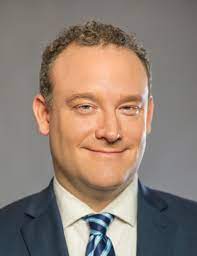 Jason Schenker
Jason SchenkerChairman of The Futurist Institute
more
World's top futurist ranked by Bloomberg News
President of Prestige Economics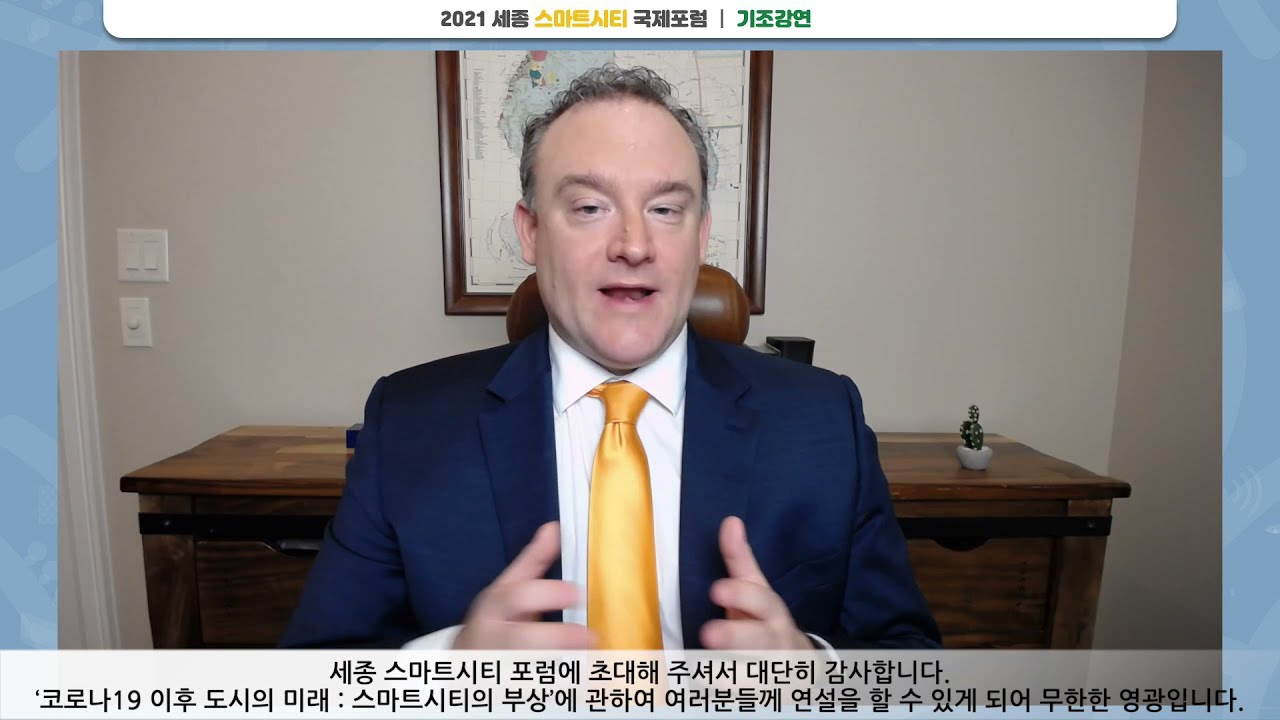
The Future of Urban Life After COVID: The Rise of Smart Cities
-
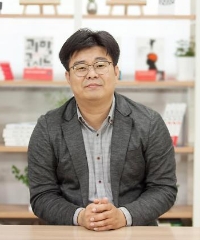 Jung Jaeseung
Jung JaeseungProfessor, Department of Bio and Brain Engineering of KAIST
more
Master Planner of Sejong National Pilot Smart City
Assistant professor, Columbia University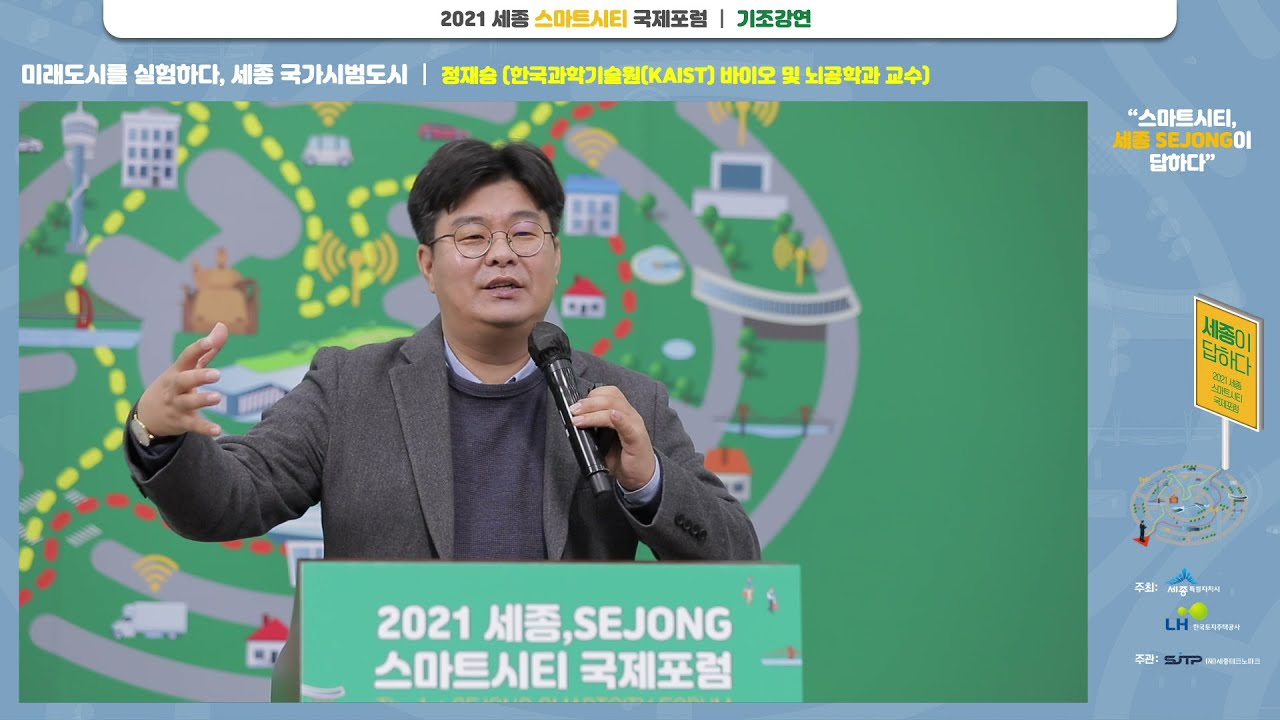
Experimenting with Future City: Sejong Smart City National Pilot Project
-
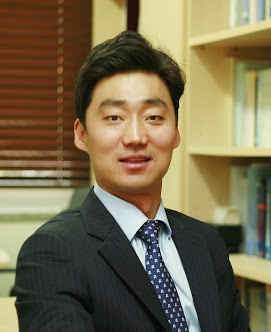 Park Seunghee
Park SeungheeProfessor, School of Civil, Architectural Engineering & Landscape Architecture of Sungkyunkwan University
more
Engineering, Virginia Polytechnic Institute and State University
Postdoctoral Research Fellow, Dept. of Mechanical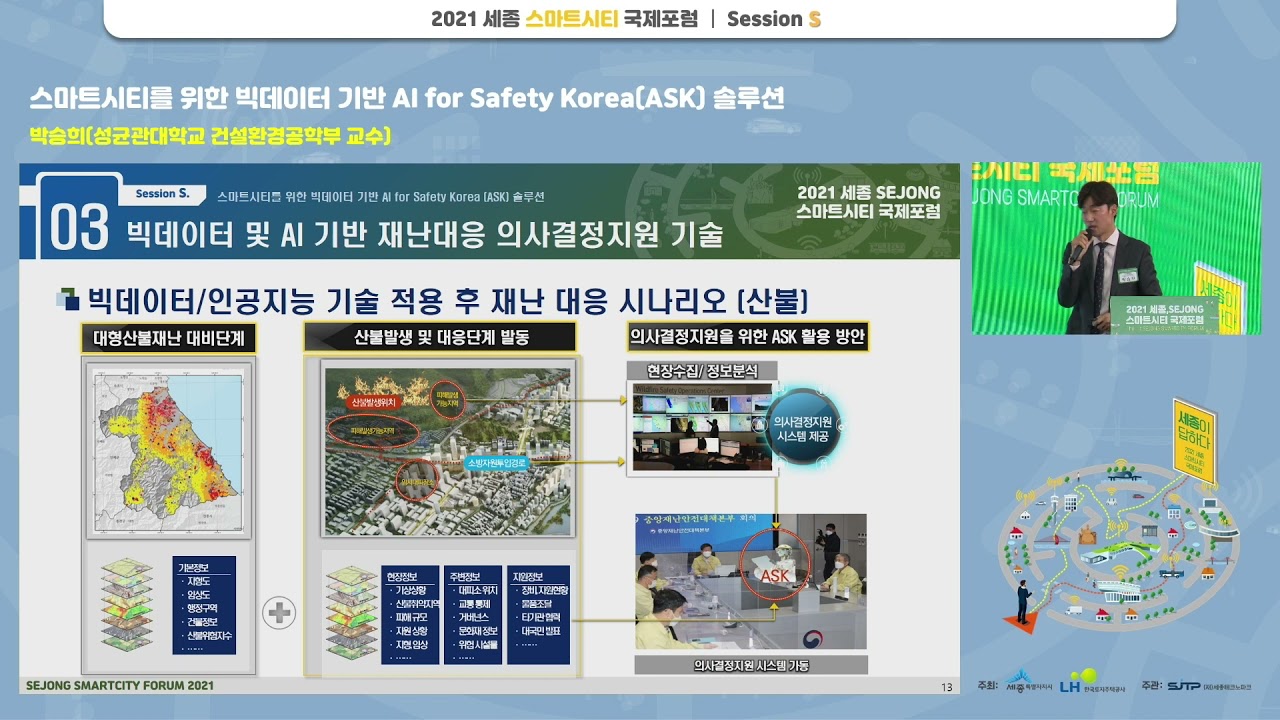
Development of AI for Safety Korea(ASK) solution based on big data for smart cities
-
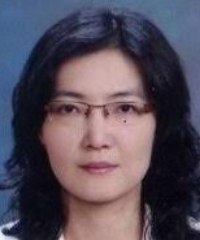 Yim Yeong-yi
Yim Yeong-yiDirector, Department of Healthcare Service Innovation of KHIDI
more
Nursing Administration, Ajou University Hospital
Staff Nurse, Severance Hospital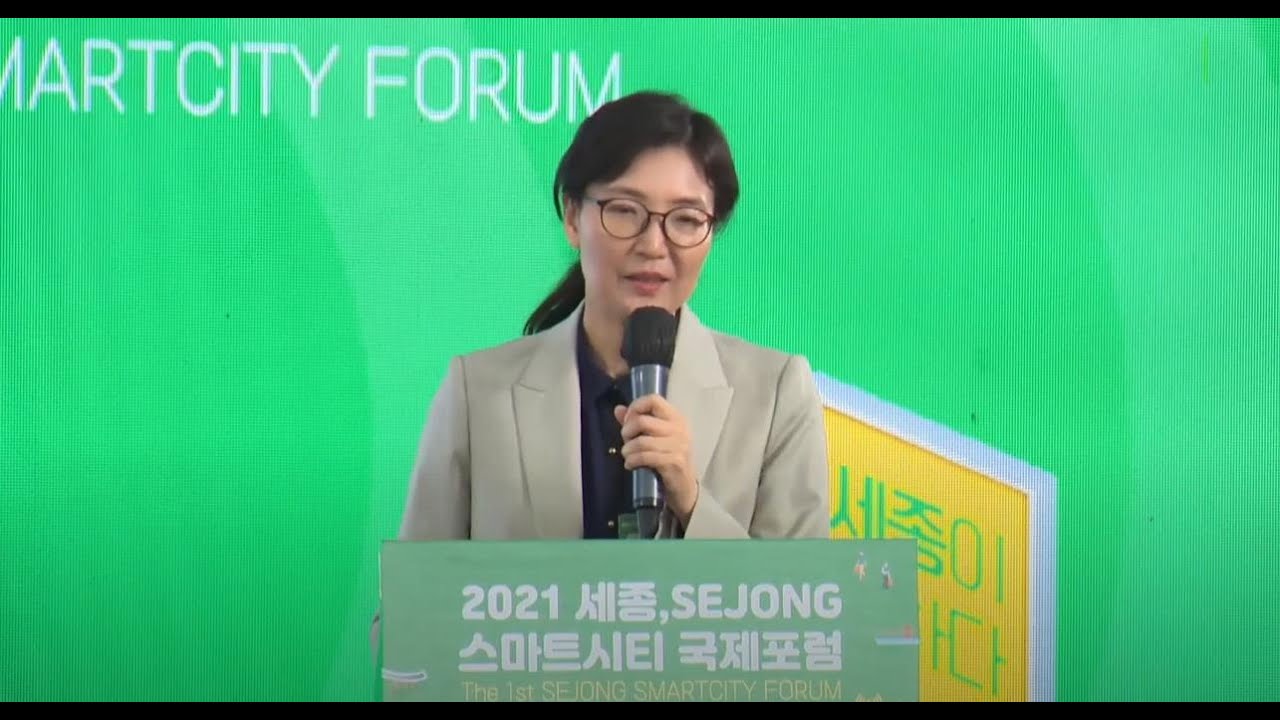
Smart healthcare for protecting the health of citizens
-
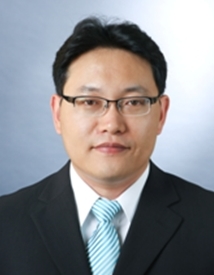 Park Giljoo
Park GiljooDirector of MiraeIT
more
Director of MiraeIT Research Institute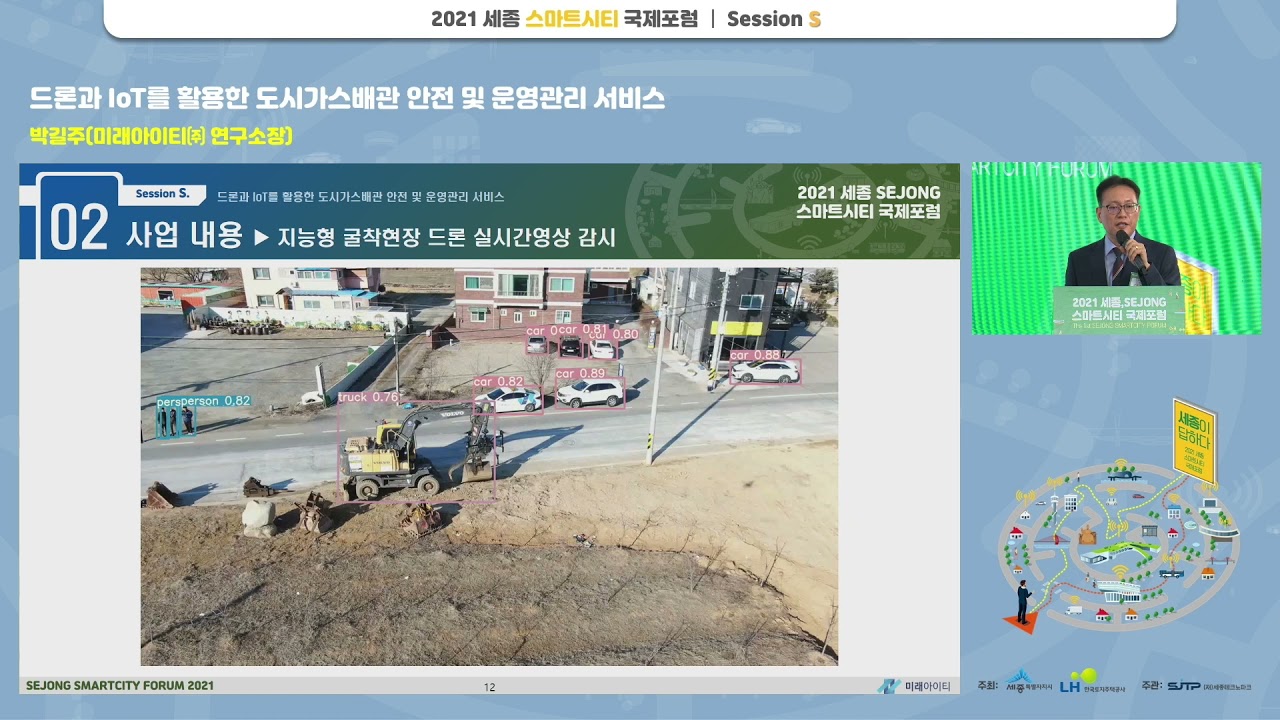
Safety and Operation Management Service for Urban Gas Pipeline Using Drones and IoT Technology
-
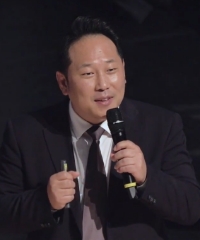 Lee Jeongmin
Lee JeongminDirector of Hancom Lifecare Co., Ltd.
Future Business&Strategy Head.Chief Officer
Advisory committee member of Jeon-ju Smartcity
more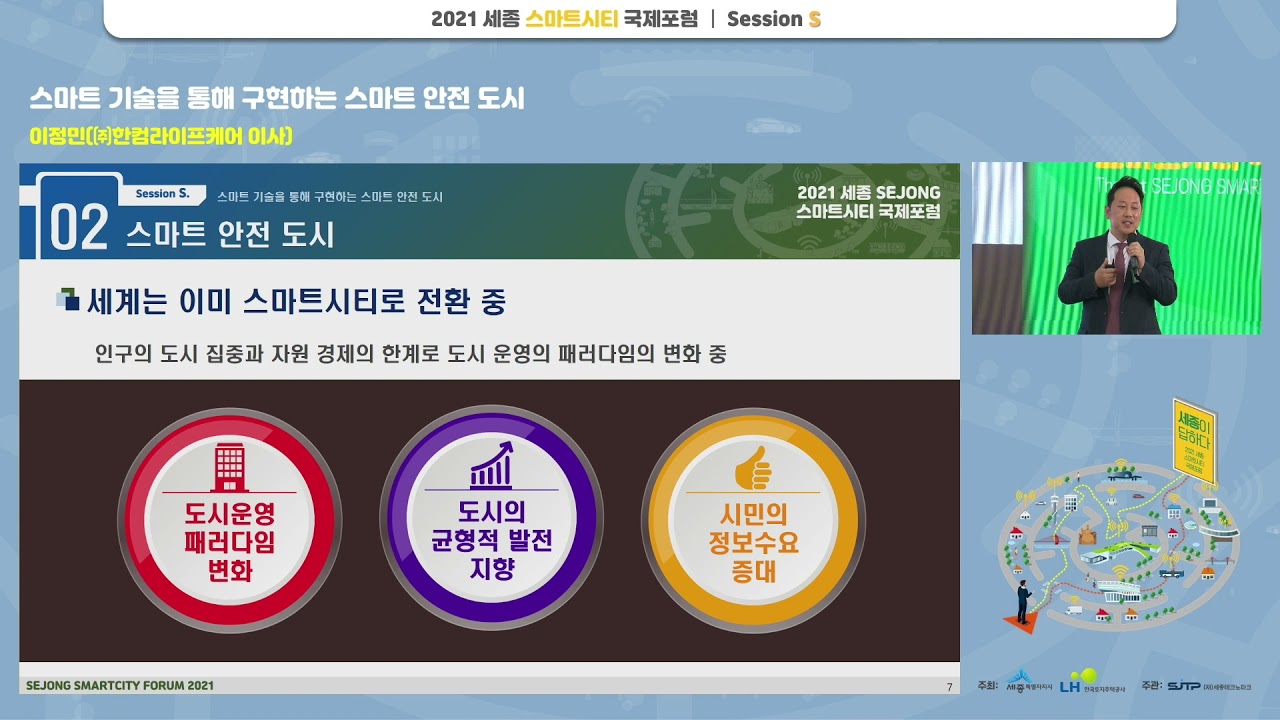
Smart safety city to be achieved through smart technologies
-
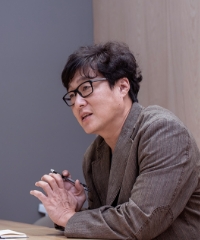 Kim Geonwoo
Kim GeonwooRecognition Technology Research Section of ETRI·Section Manager, Authentication
Full time professor of University of Science & Technology
Project Leader of Intelligent Security Research Group, Electronics Section
more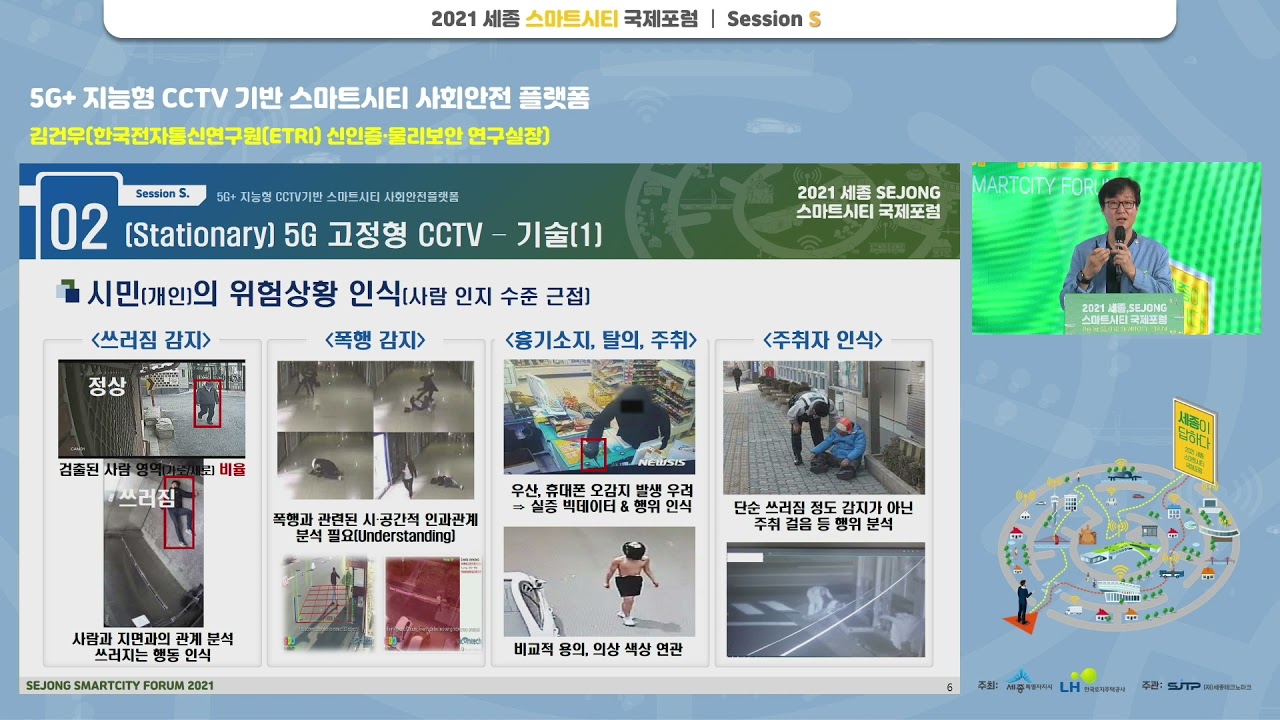
5G+ intelligent CCTV-based smart city social safety platform
-
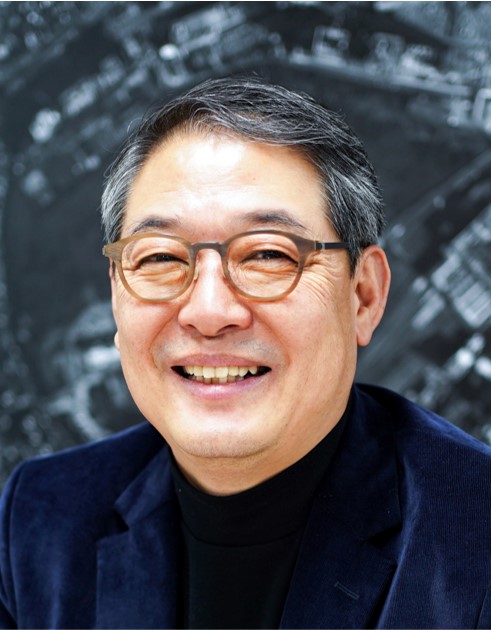 Kim Do-nyun
Kim Do-nyunProfessor, Department of Architecture & Graduate School of Convergence Engineering for Future Ctiy of Sungkyunkwan University
more
Korea National Smart City Committee
Master Planner, Yongsan Urban Regeneration Project -
 Kim You-min
Kim You-minDirector of GreenCity Research Institute(GCI)
more
Ministry of Education, Future Education Committee
Seoul Metropolitan Government, Advisory Board on Corrective Assessment of Urban Policy -
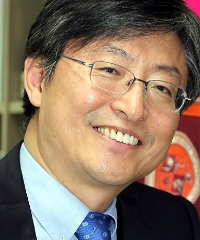 Lee Sangkeon
Lee SangkeonDirector of Korea Research Institute for Human Settlements Global Development Partnership Center
more
Master Planner of Sejong Smart City Project
Head of Delegation, ISO/TC204 -
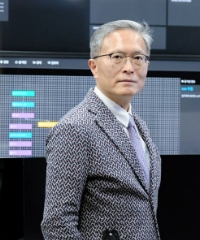 Park Sehyun
Park SehyunProfessor, Graduate School of Intelligent Energy and Industry of Chung-Ang University
more
Energy Technology Infrastructure Committee, MOTIE
Advisory Committee, KETEP
(Open innovation platform based on civic engagement·governance)
-
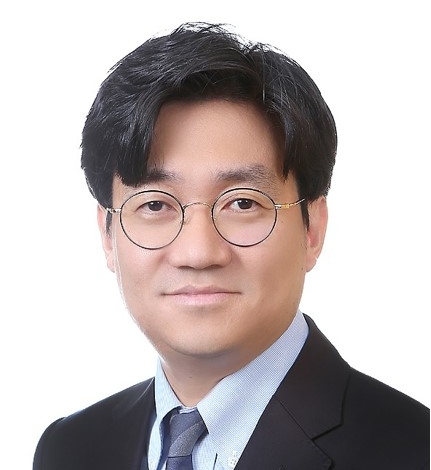 Benjamin Insang Yoo
Benjamin Insang YooVice president of LG CNS
more
LG CNS Smart SOC Biz Unit Vice President
Smart City Business Unit Senior Director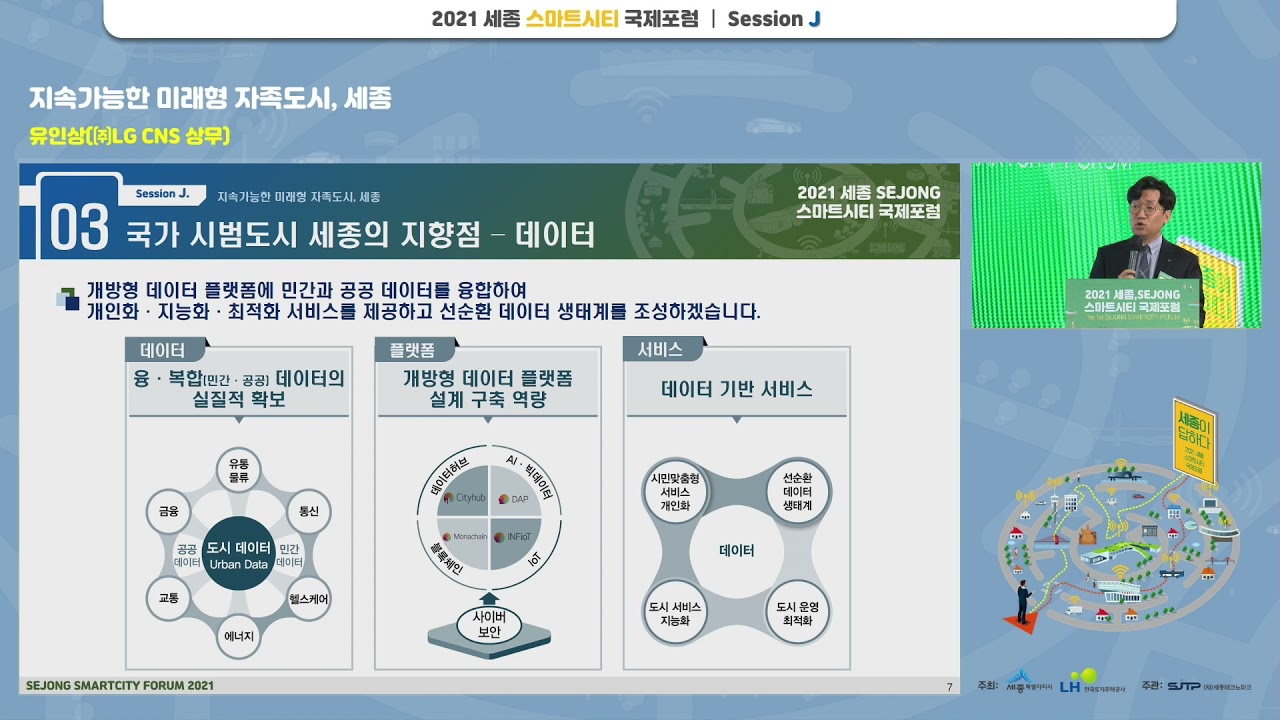
The sustainable, self-sufficient future city of Sejong
-
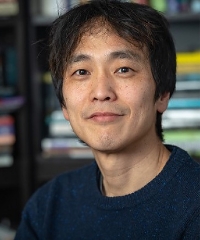 Jung Jinkyu
Jung JinkyuAssociate Professor,Interdisciplinary Arts and Sciences of University of Washington
more
Adjunct Associate Professor, Geography
University of Washington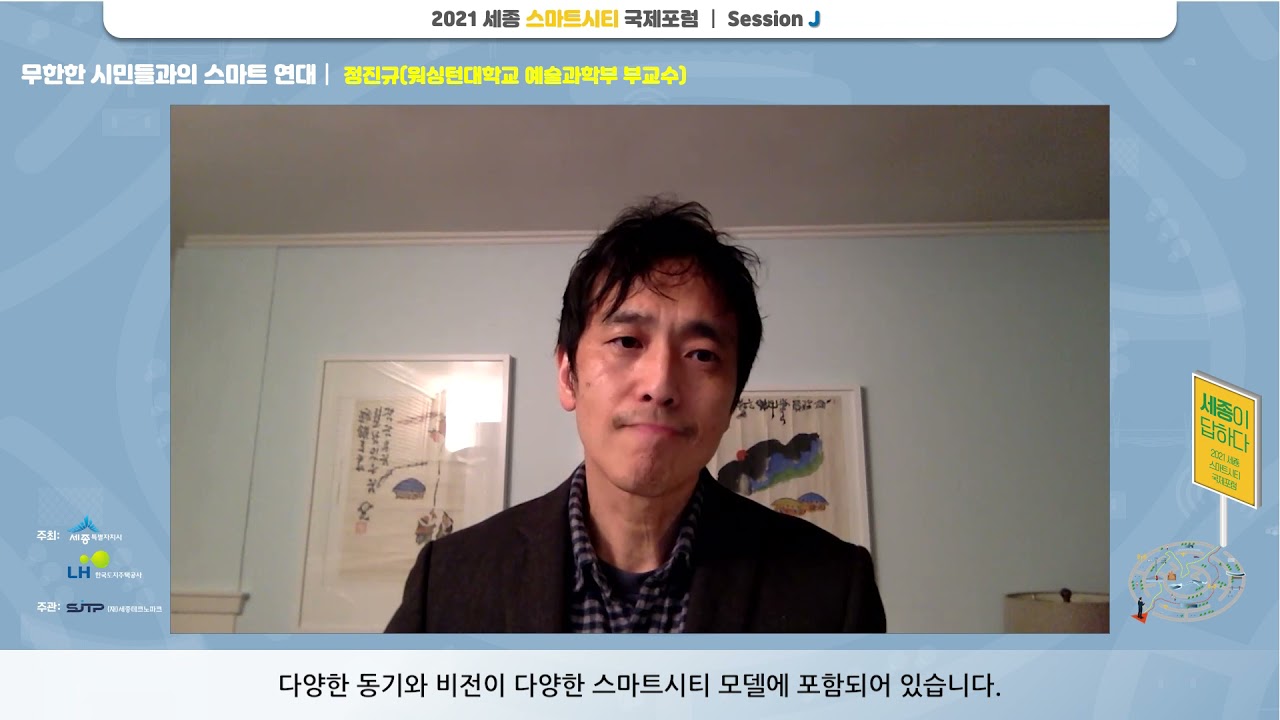
Smart engagement with citisens unbound
-
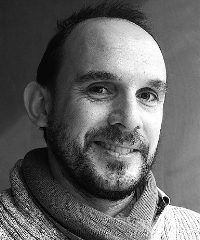 Fernando Vilariño
Fernando VilariñoChairperson of ENoLL
more
President of the European Network of Living Labs(ENoLL)
Associate Director at Computer Vision Center(CVC)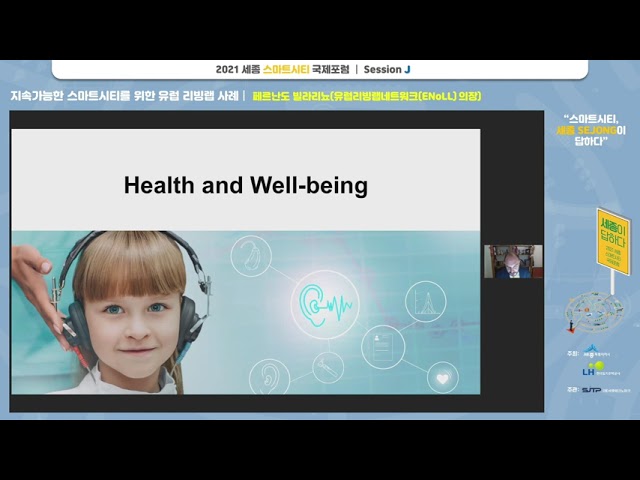
Citizen-centric innovation for the Smart City in the European Network of Living Labs(ENoLL)
-


Citizen-centric innovation for the Smart City in the European Network of Living Labs(ENoLL)
-
 Heo Na-yun
Heo Na-yunTeam Leader of Smart City Team, Ministry of Land,Infrastructure and Transport
more -
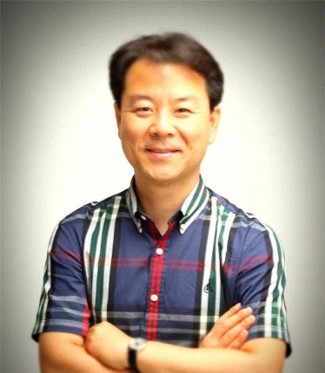 Ahn Chang-won
Ahn Chang-wonDirector, Smartcity Institute of VAIV Company
more
KISE Vice President of Industry-Academy Collaboration
Principal researcher of ETRI -
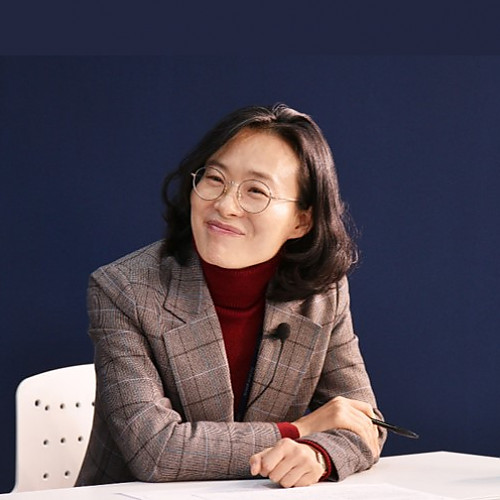 Seong Jieun
Seong JieunResearch fellow of STEPI
more
Ministry of Economy and Finance
Contract System Innovation TF
Civilian Member -
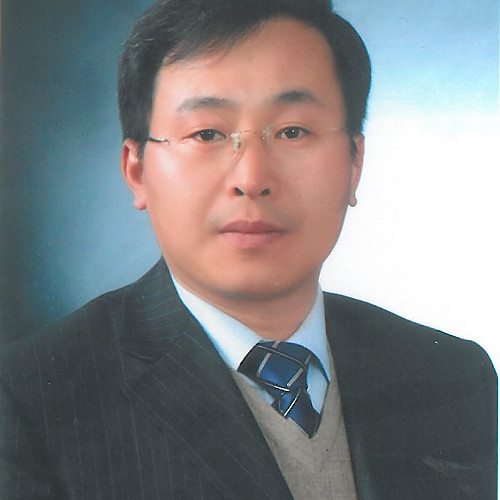 Choi Dong-yeol
Choi Dong-yeolDirector, Smart City Team of National Agency for Administrative City Construction
more
(previous) Director of Urban Spatial Information Team -
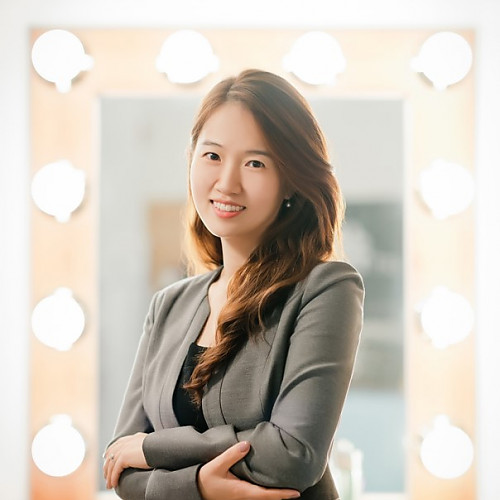 Chang Minju
Chang MinjuDirector, Smart City division of Sejong City
more
Director of urban transport, Sejong City
Economic Policy Division, Ministry of the Interior and Safety
Graduate School of Public Administration, Seoul National University
(Citizen-oriented smart cities in the era of super-connectivity)
-
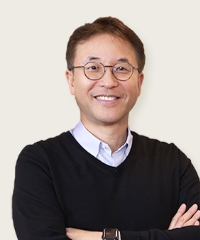 Cho Sungzoon
Cho SungzoonProfessor, Department of Industrial Engineering of Seoul National University
more
Director, SNU Data Mining Center
Chair, the 3th/4th Open Data Strategy Council
Big Data Chair, Government 3.0 Committee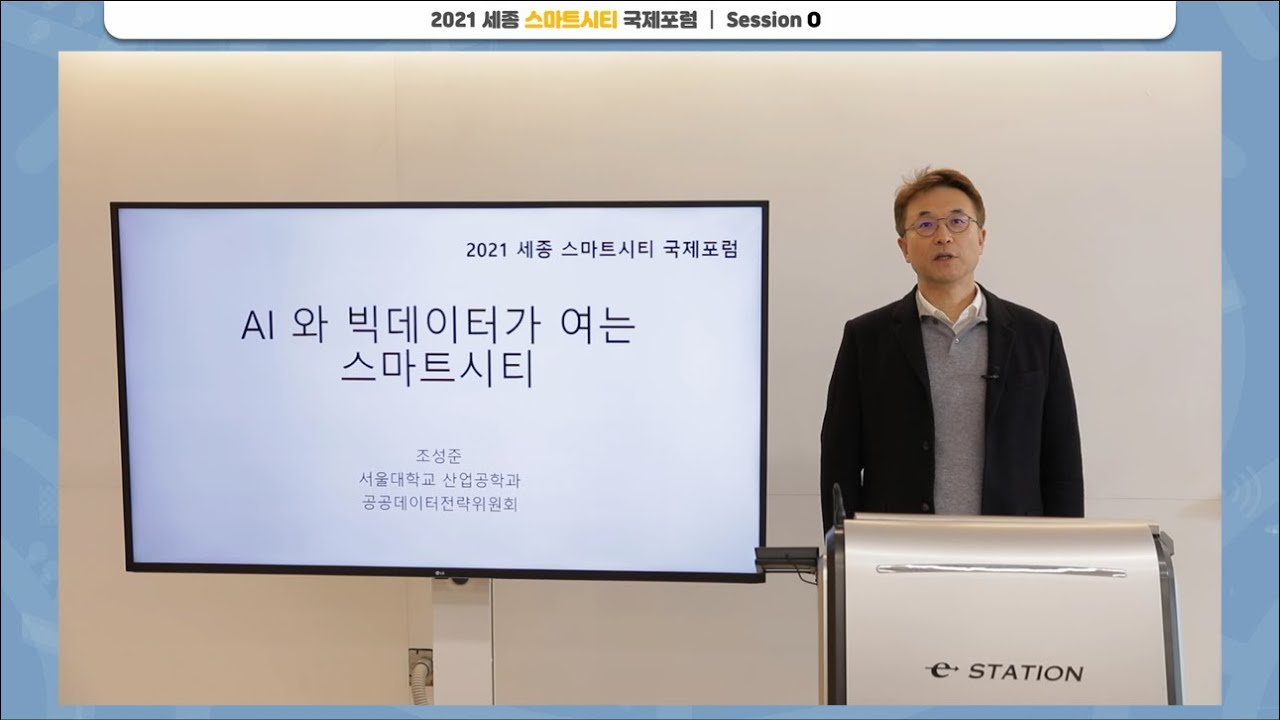
Smart city ushered in by AI and big data
-
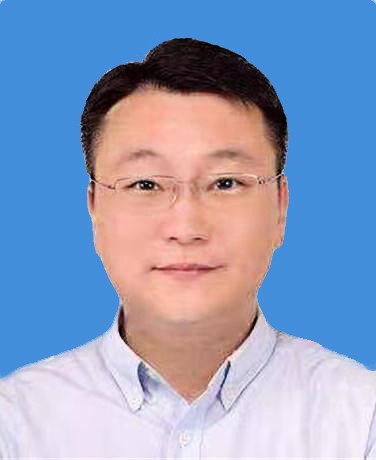 Li Mingxin
Li MingxinDirector of Dadukou District Office, Chongquing Branch, China Unicom
more
Member of the Party Working Committee of Gui'an New District, Guizhou Province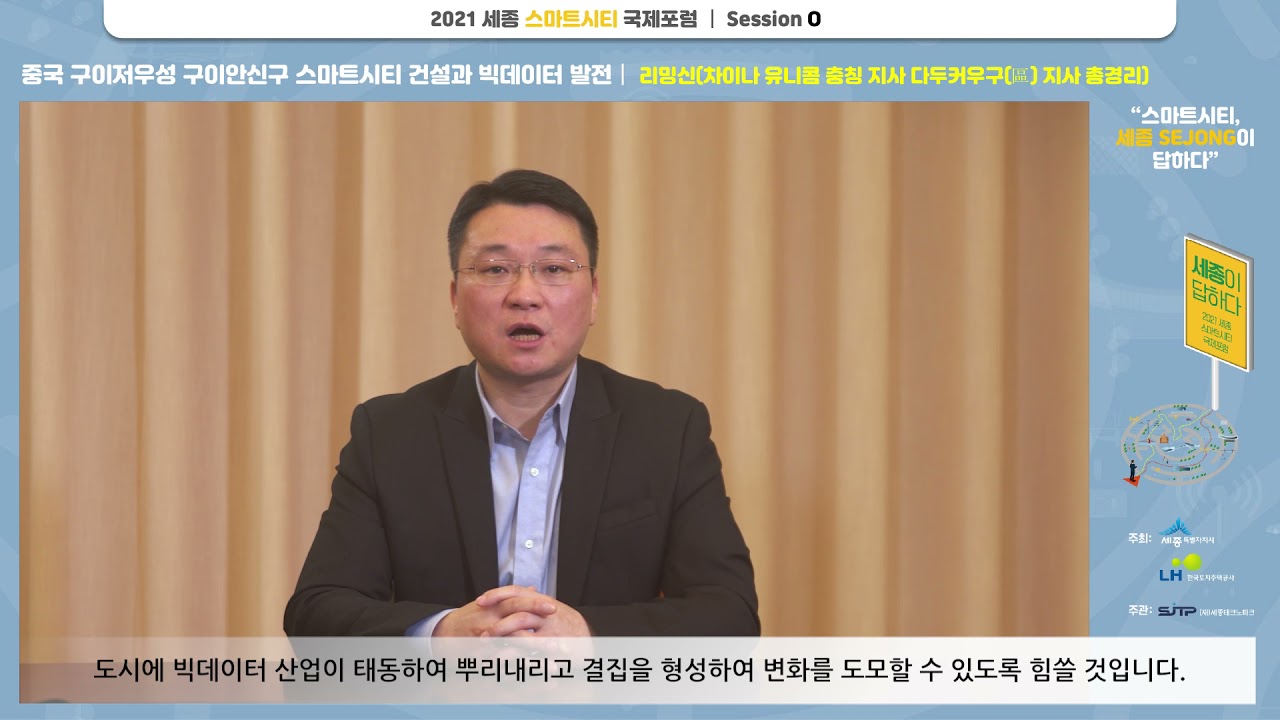
Construction of Smart City of Gui'an New District in Guizhou Province and the Development of Big Data
-
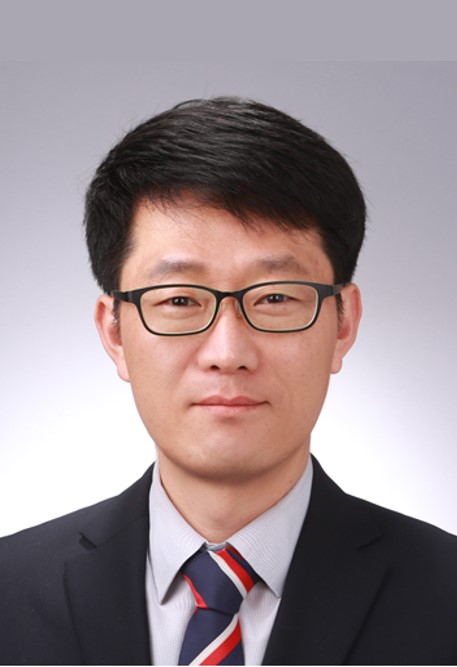 Jung Yungjoon
Jung YungjoonPrincipal Researcher of ETRI
more
Leader of Embedded SW research section in ETRI
Review board in National research Foundation of Korea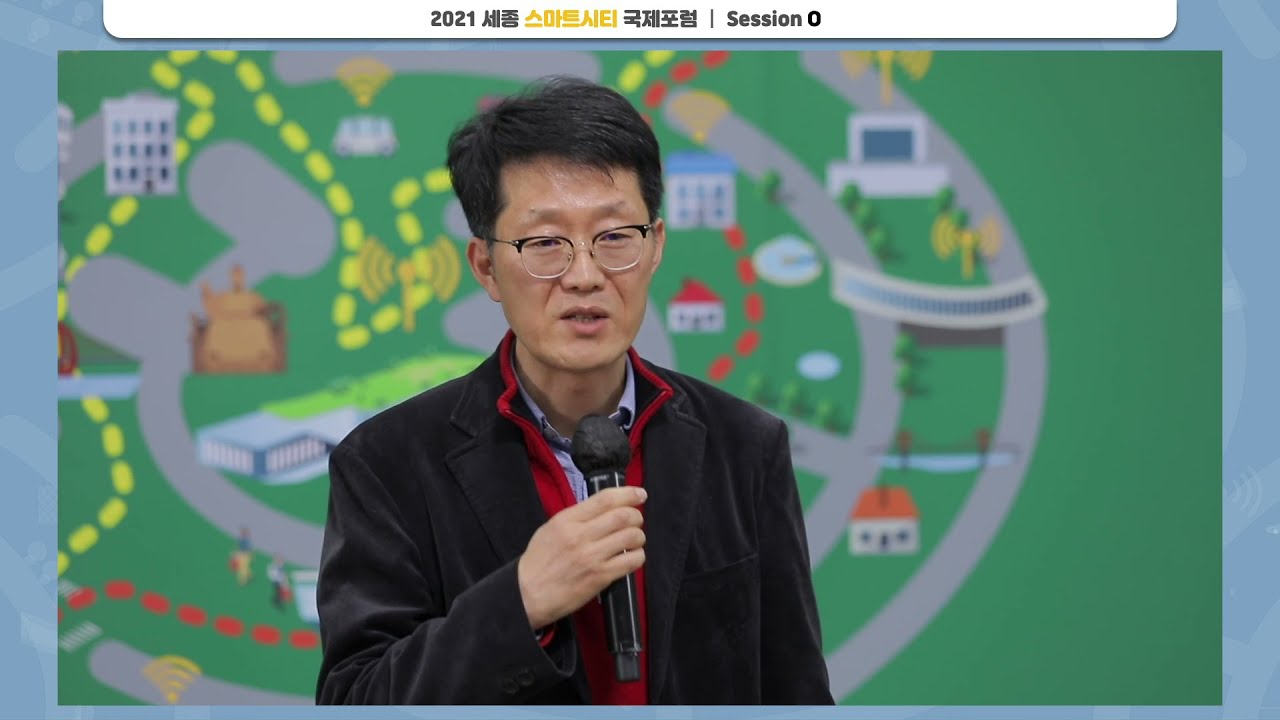
Case study on a digital twin based on agent models for utilization of urban policies
-
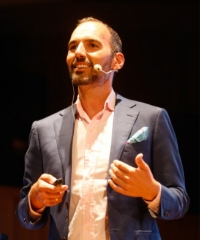 Timothy Papandreou
Timothy PapandreouFounder of Emerging Transport Advisors
more
SFMTA CIO
Google X and Waymo strategic partnerships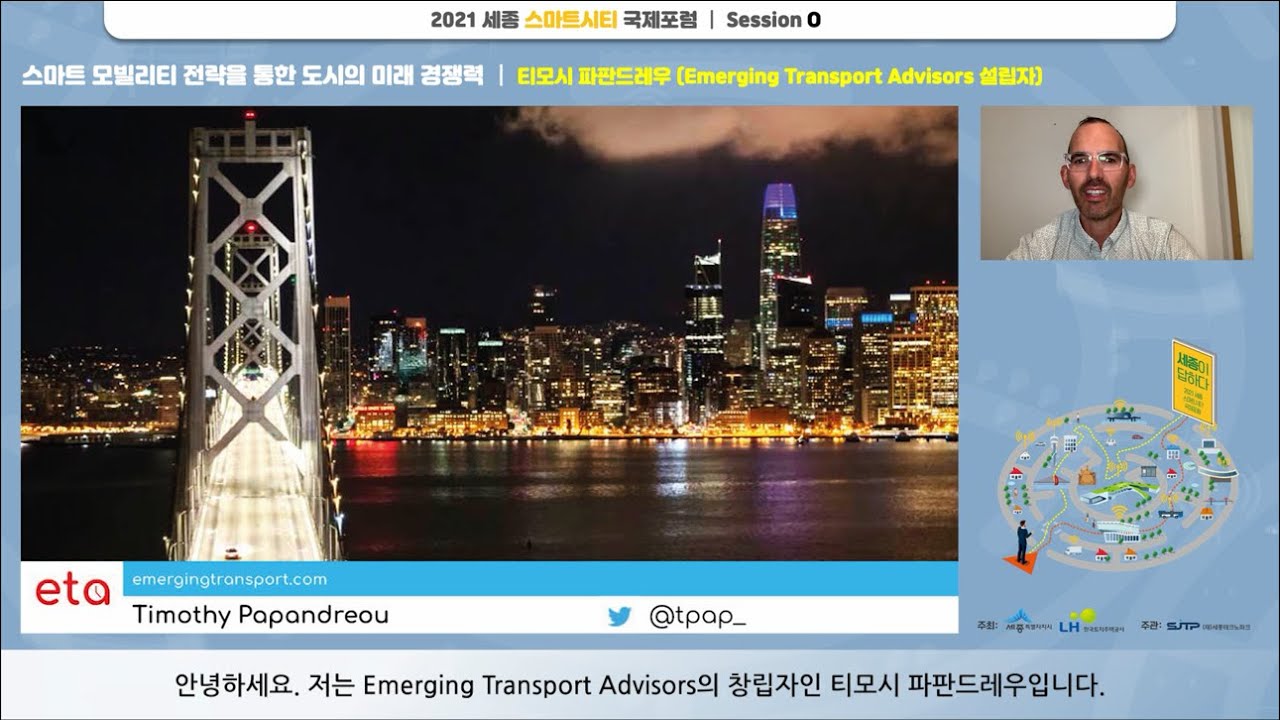
Future proofing our cities through smart mobility strategy
-
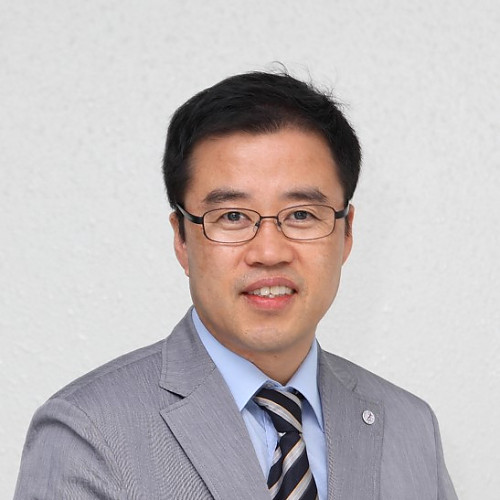 Moon Youngjun
Moon YoungjunSenior Research Fellow of KOTI
more
PACST Committee Member Chair of Air&Space Committee
Post Doctoral Res. Associate in UIUC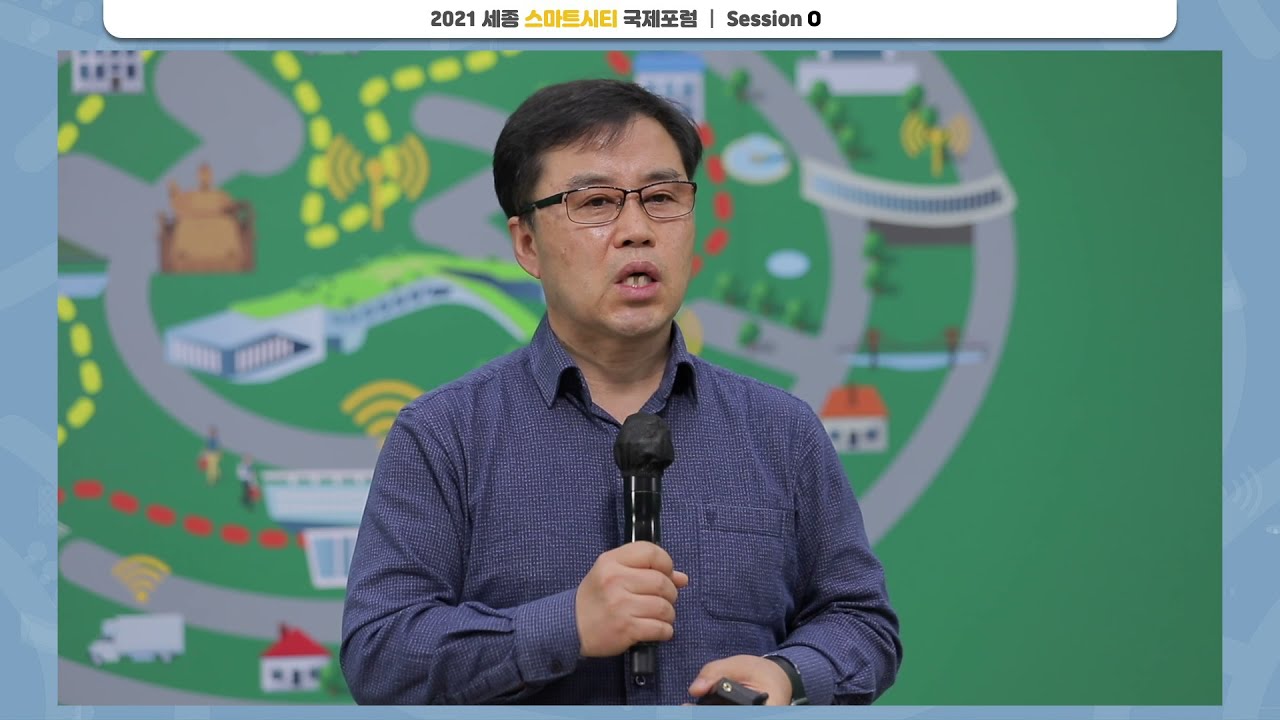
Autonomous driving-based urban smart mobility
-
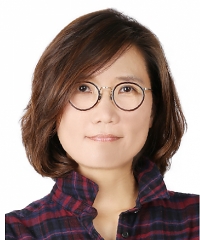 Kim Sooyoung
Kim SooyoungHead, Group of Hyundai Motor Company
more
Head of Group, Mobility & Connected Service Lab at HYUNDAI MOTOR COMPANY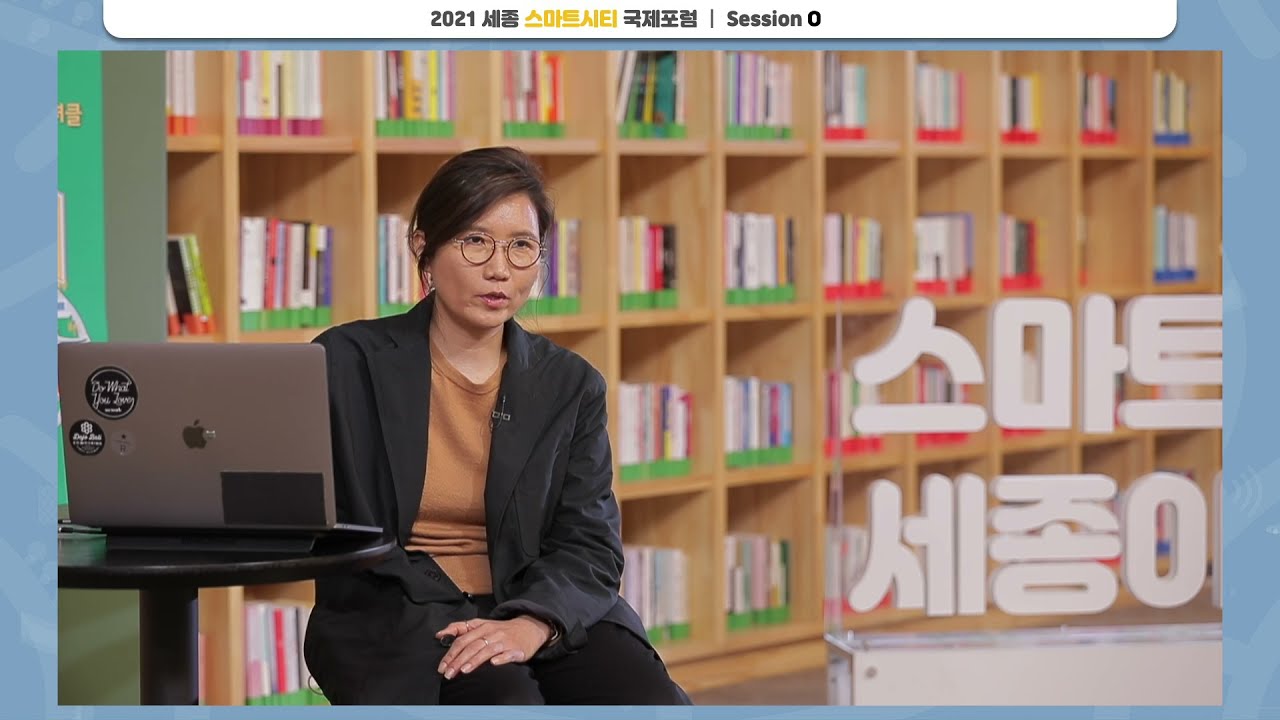
Community mobility service, Shucle: a new way of traveling short distances
-
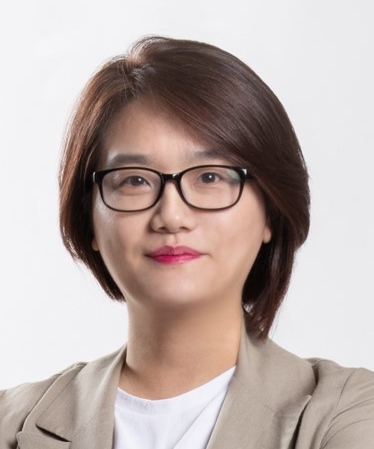 Sarah Jung
Sarah JungCEO of Maas Asia Inc.
more
Triangle Wide Co., Ltd. CEO
Digitalarea UX Leader Co., Ltd.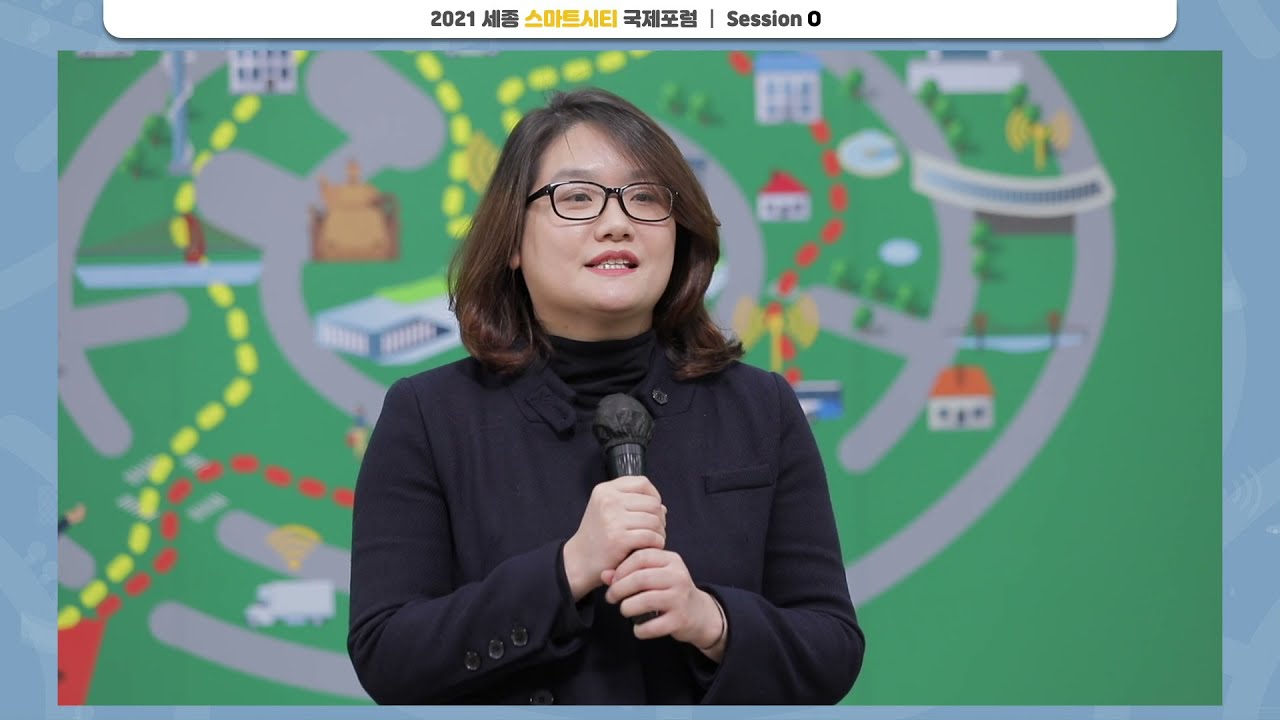
Demand prediction and dispatch recommendation service for sharing e-scooter
(Changed the future of cities after covid-19 in new normal era)
-
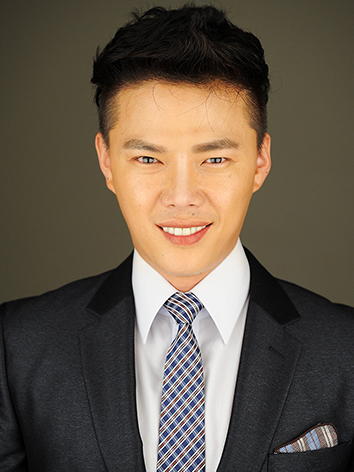 Lee Siwan
Lee SiwanCEO of LBStech
more
Hyundai Motors UX Consuting
LG Electronis BPO
ICLA M.B.A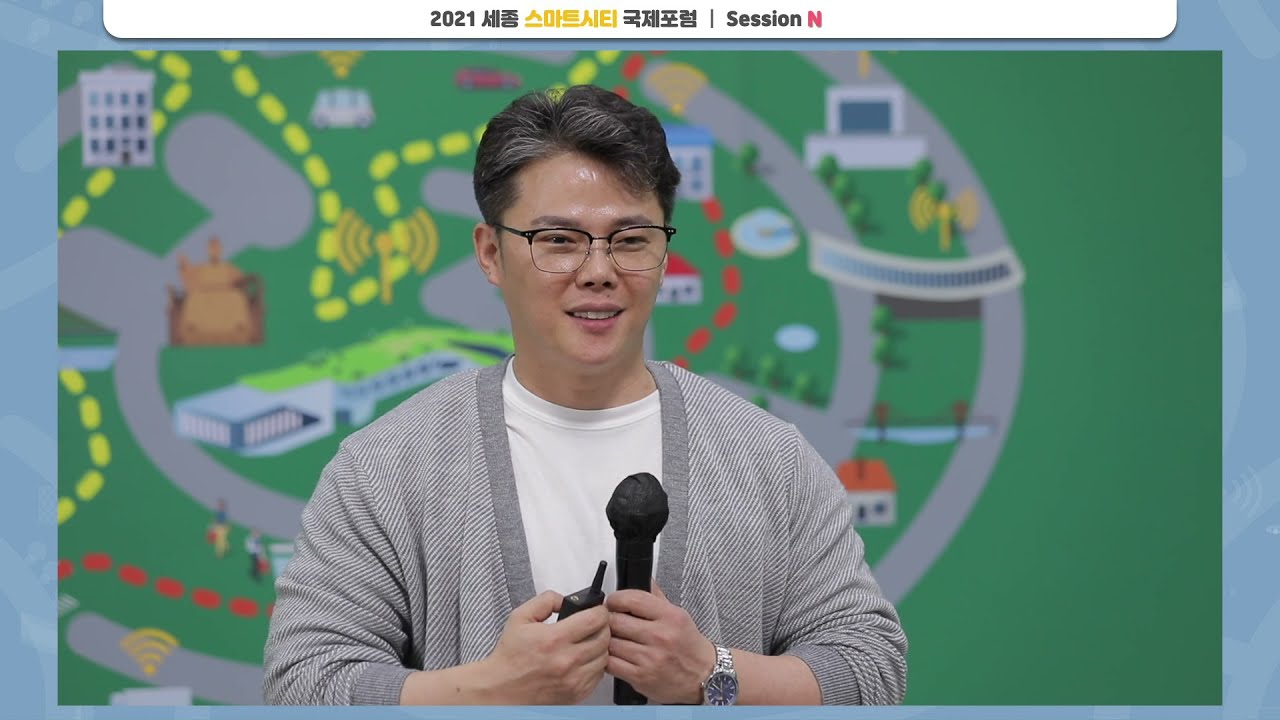
Non-face-to-face order, payment, and route guidance platform for persons with visual impairment
-
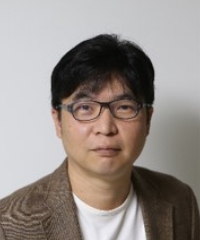 Jung Naksoo
Jung NaksooLeader of NAVER Cloud
more
Naver Cloud
Tech evangelist leader
Platform evangelist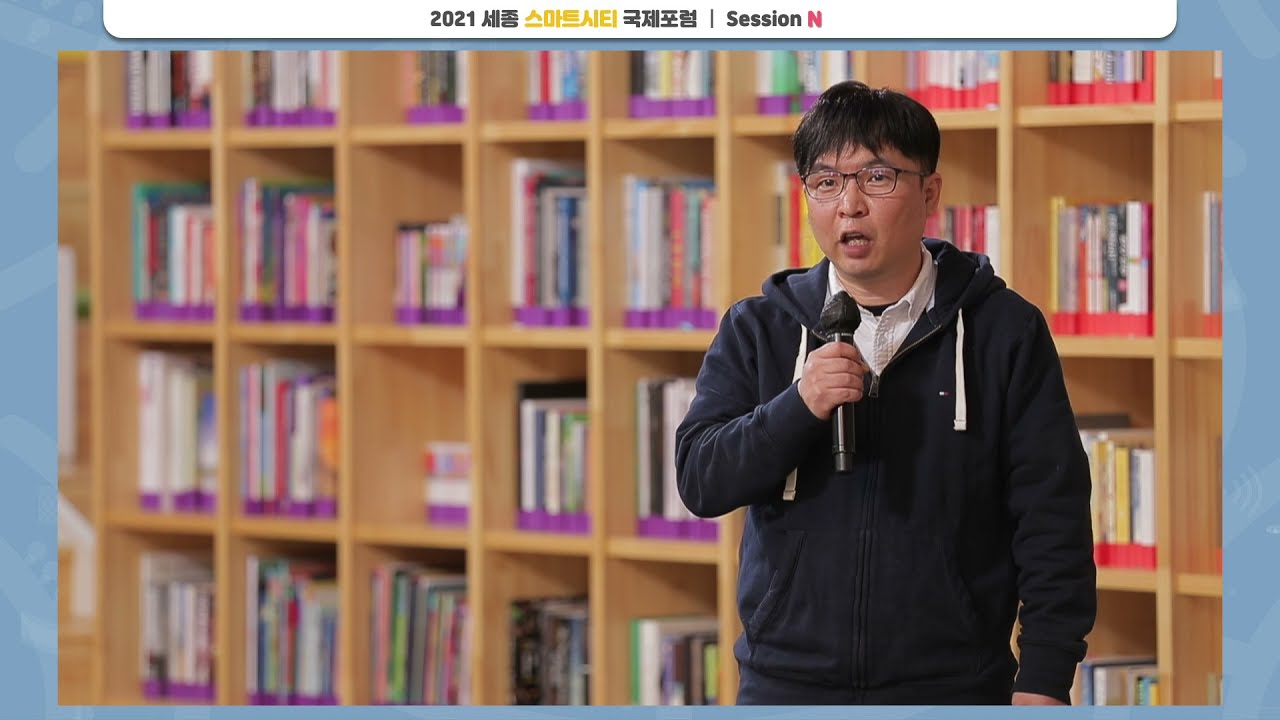
Smart city ushered in by cloud computing in the post-COVID19 era
-
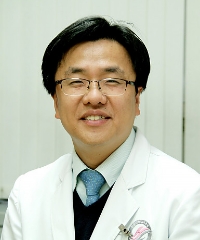 Lee Jacob
Lee JacobAssociate professor, Infectious Disease of Hallym University's Gangnam Sacred Heart Hospital
more
Member of Special Committee on Infectious Disease Crisis Response of KCDC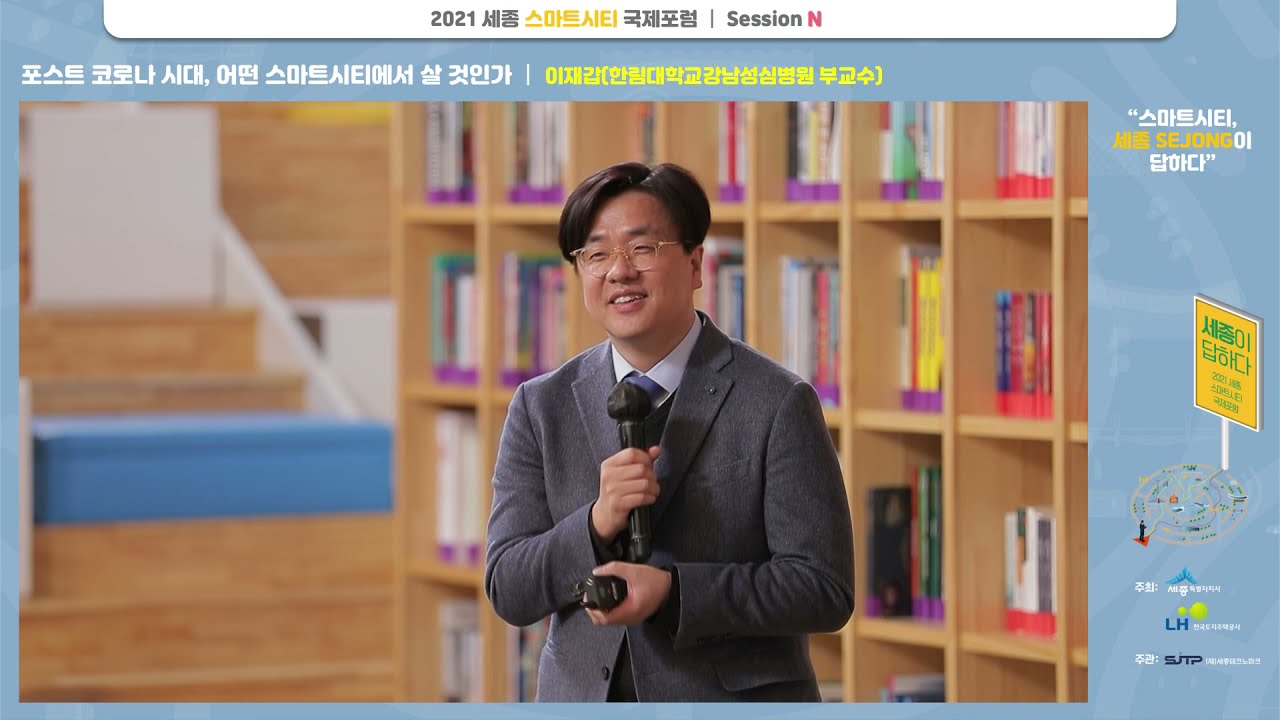
In the Post-COVID-19 era, Which Smart City Will You Live In?
-
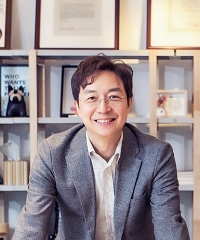 Yoo Hyunjoon
Yoo HyunjoonArchitect of Hyunjoon Yoo Architects
more
Space consulting group CEO
Harvard University
Master of Architecture with Distinction
The smart city and Sejong City
(Strategies for Sejong Smartcity model to enter the global market)
-
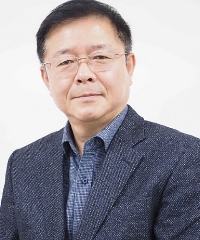 Lee Kyong-yul
Lee Kyong-yulSecretary general of WeGO
more
Professor, MOFA
(Korea National Diplomatic Academy)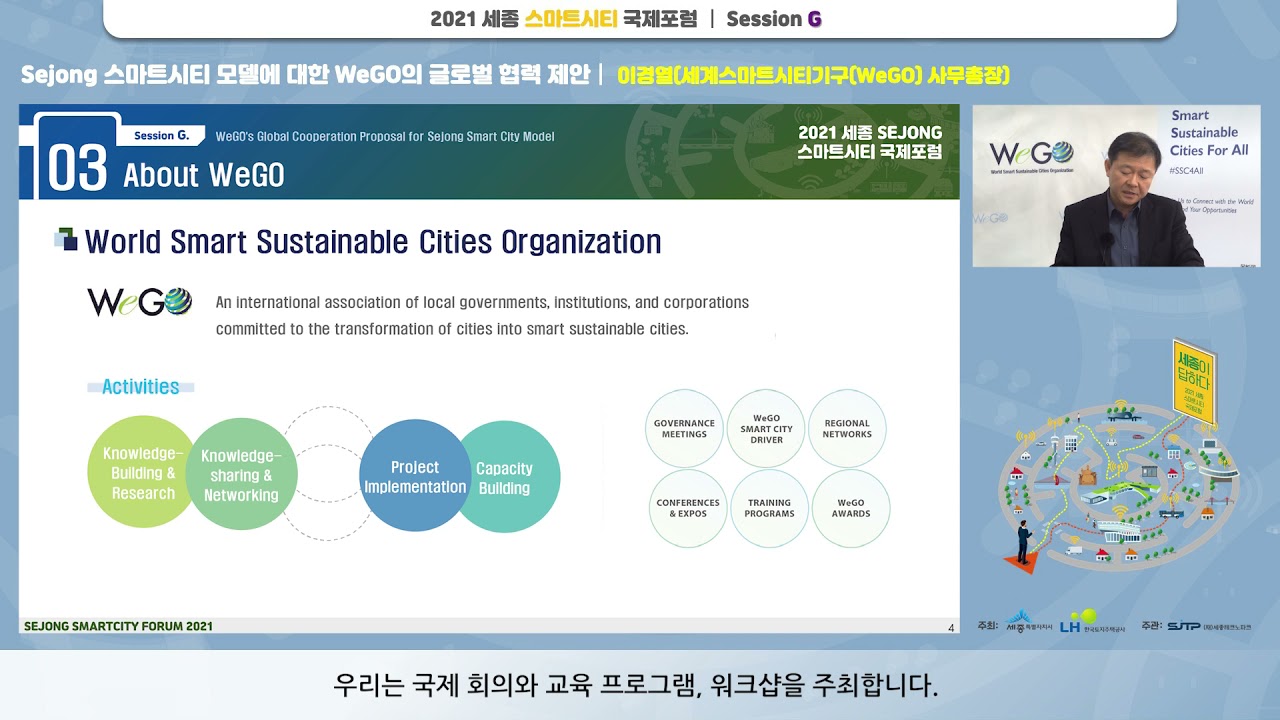
Global cooperation proposal of WeGO for Sejong Smart City model
-
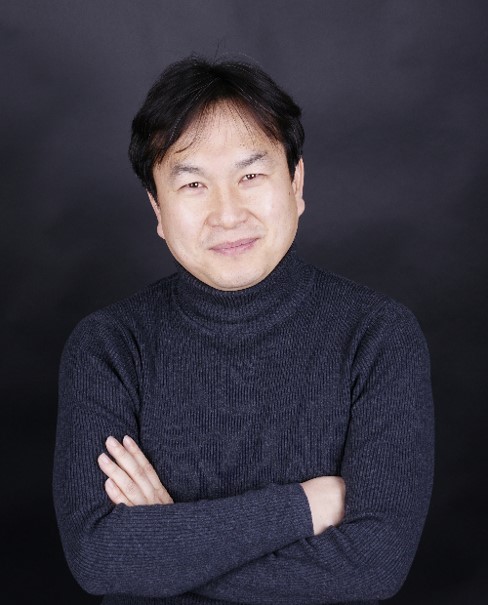 Cho Youngtae
Cho YoungtaeDirector, Smart City Lab of Korea Land and Housing Corporation
more
Member of Committee, New Town Forum of MoLIT
Member of Board, Urban Design Institute of Korea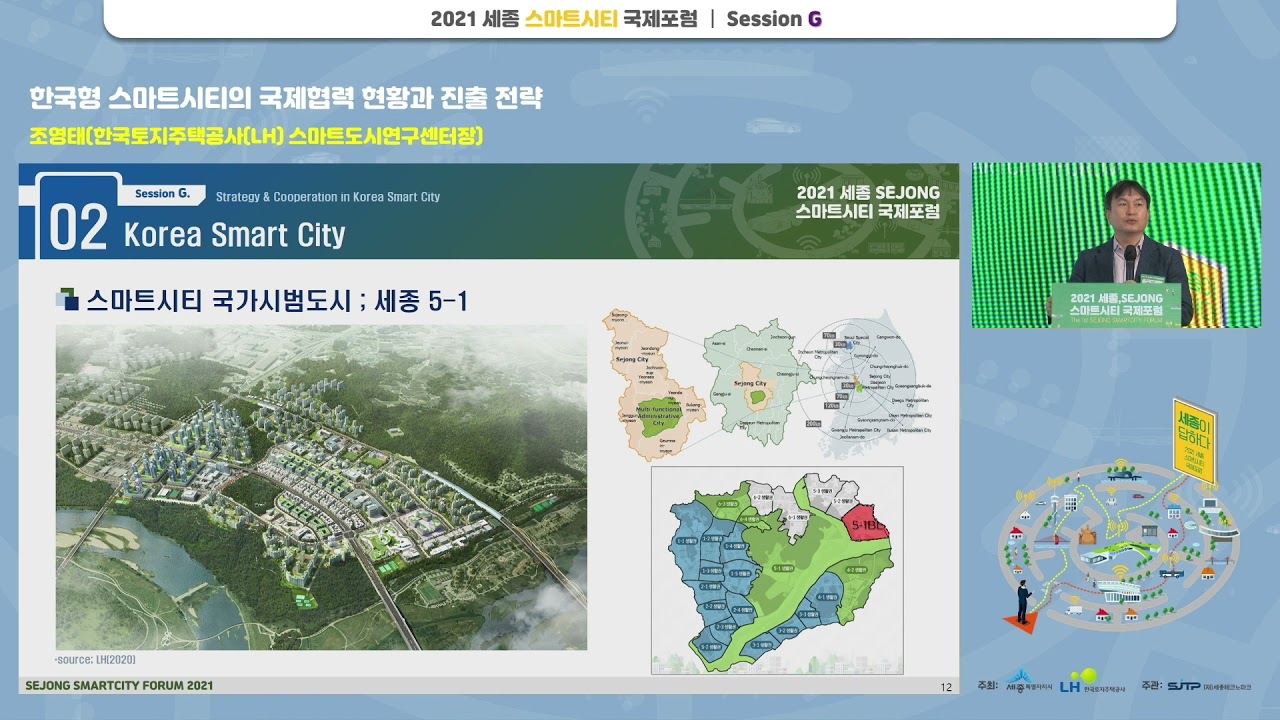
Current state and strategy of international cooperation of a Korean-style smart city
-
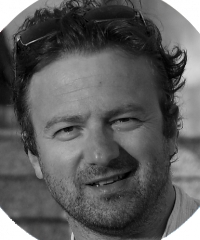 Levent Gürgen
Levent GürgenPresident of the Urban Technology Alliance
more
Founder and President of Kentyou
Researcher in CEA-LETI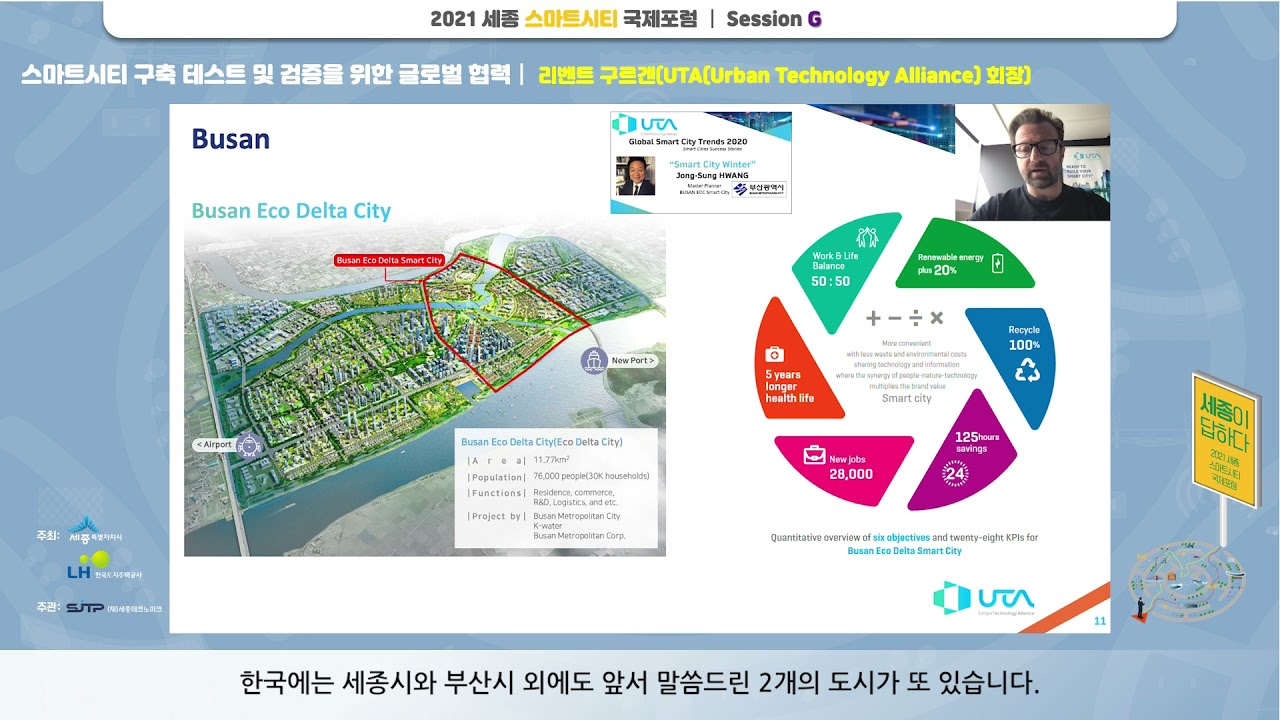
Global cooperation for testing and validating smart city deployments
-
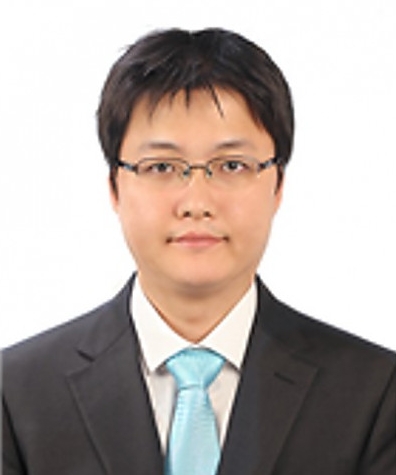 Kim Hansig
Kim HansigTeam Leader, Smart City Standards Team of KATS
more
Team Leader, Smartcity Standards Team, KATS
Deputy Director, Product Safety Surveillance Division, KATS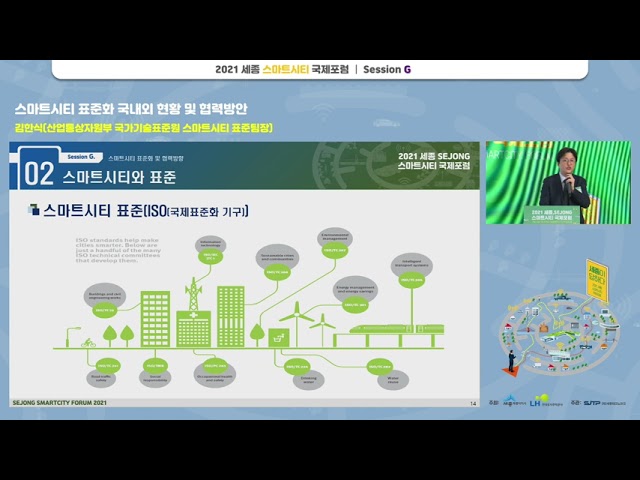
Current state of standardization for smart city in and out of Korea, and ways for cooperation
-
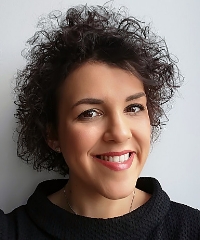 Emilia Cardamone
Emilia CardamoneProgramme manager of BSI
more
Programme manager(Digital construction)
Certification manager(Digital construction)
Business development manager(Product certification and testing)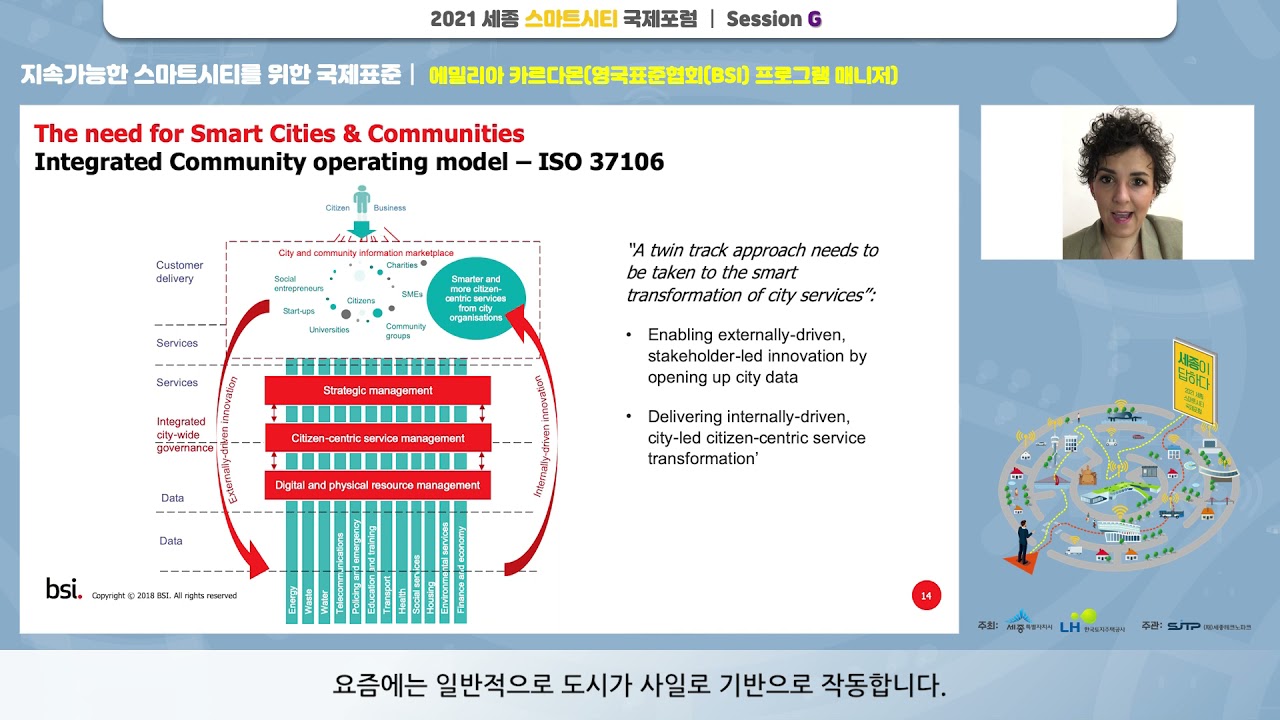
International standards for sustainable smart cities
-
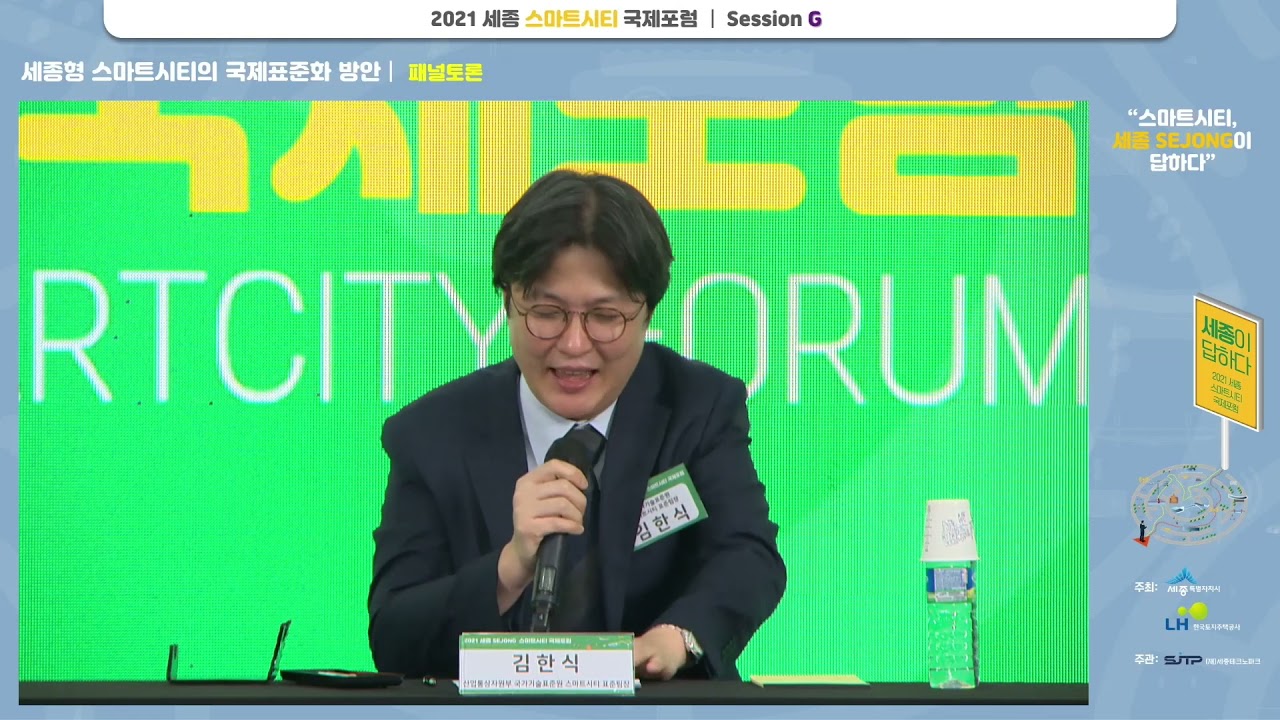

[Panel discussion] International standardization plan of Sejong Smartcity
-
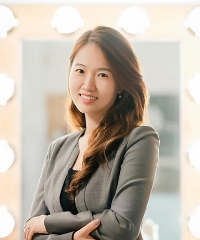 Chang Minju
Chang MinjuDirector, Smart City division of Sejong City
more
Director of urban transport, Sejong City -
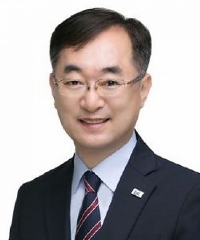 Jeong Sunghun
Jeong SunghunDirector/Client manager of BSI
more
Senior Judge and evaluated smart city operating model for ISO 37106
-
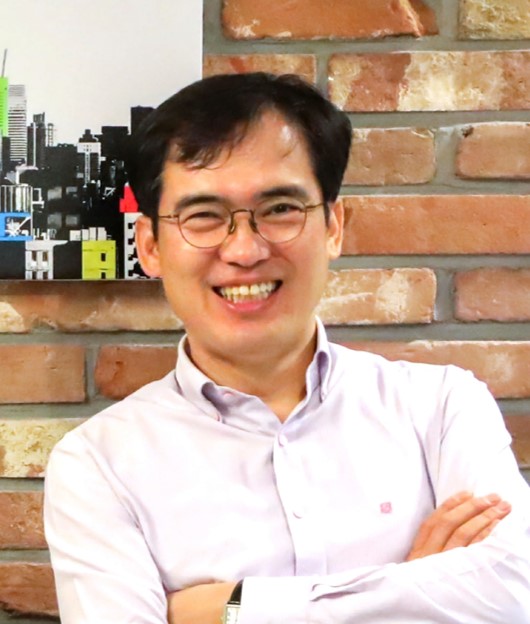 Park Chol-soon
Park Chol-soonPresident of Sejong center for creative economy&innovation
more
Advisor, SK Group
Director of Commercial Business, IoT Business Division, SK Telecom -
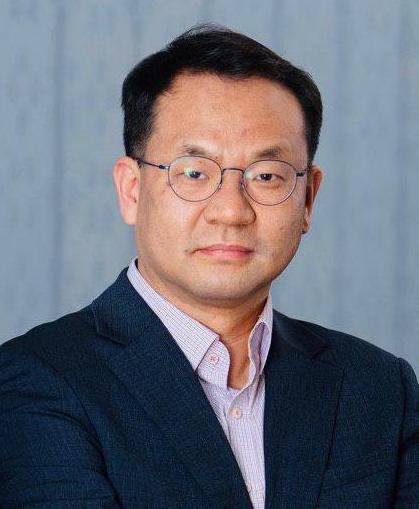 Yeo Hwasoo
Yeo HwasooProfessor of KAIST
more
Board Member, Korean Society of Transportation
Board Member, Korean Society of System Safety -
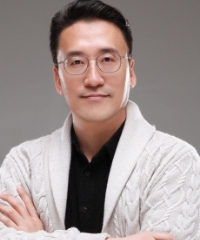 Baik Sengtae
Baik SengtaeCEO of BlueSignal Inc
more
Senior Business development director (in charge of North America, Canada, China) BeyondSoft Global
CEO of American corporation Winosoft Inc -
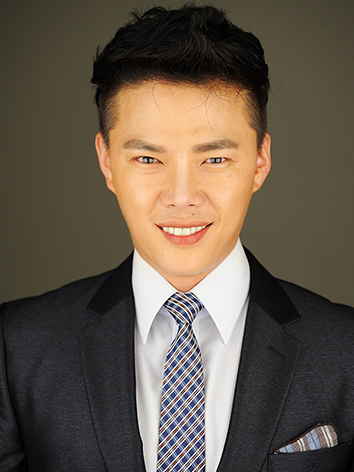 Lee Siwan
Lee SiwanCEO of LBStech
more
Hyundai Motors UX Consuting
LG Electronis BPO
ICLA M.B.A -
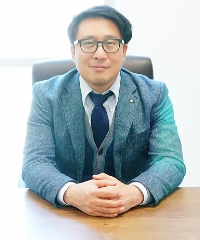 Zhang Hyunjae
Zhang HyunjaeCEO of F&D Partners Inc
more
Team Leader of INTEKPLUS Co. Ltd.
Minister of Science and ICT award
Minister of SMEs and Startups award
-
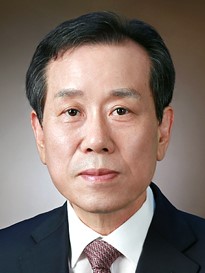 Yoon Seokmoo
Yoon SeokmooHead, Department of Sejong Technopark
more
(previous)Head of Policy Planning Department,
Daejeon/Gyeongnam Technopark -
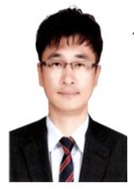 Cho Yunhee
Cho YunheeDirector of Chemtronics
more
NXP Semiconductor
Robert Bosch
Hyundai MOBIS R&D Center -
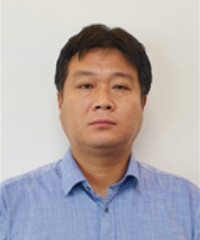 Jeong Seunglyung
Jeong SeunglyungStrategic planning director of a2zAutonomous
more
Expert committeeman, DNV GL
Team leader, Hancommds -
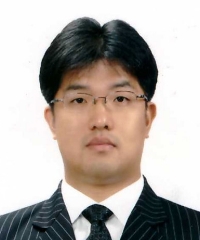 Moon Heechang
Moon HeechangCTO of Unmanned Solution co., Ltd.
more
(previous) CEO, Unmanned Solution. Co
Univ. of Florida(USA) Researcher -
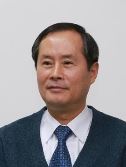 Kim Sunkyeong
Kim SunkyeongChief, Department of Future Convergence Industry of Sejong Technopark
more
Ssangyong Motor Company an executive director

Chairman of The Futurist Institute
World's top futurist ranked by Bloomberg News
President of Prestige Economics
What is the future of the city after COVID? And what does the acceleration toward remote life and technological convenience mean for integrating technologies to foster the development of smart cities?
These are some of the most important questions that futurist Jason Schenker will address in this talk on the future of urban life and smart cities after COVID. There will be a discussion of the major technological accelerations because of COVID-19 as well as an exploration of the most relevant technologies that will help shape smart city development. This exploration of the future of urban life and the development of smart cities will inform attendees of the medium-term synergies, opportunities, and challenges for smart cities in the decade ahead.
Mr. Schenker will share his visions for how people will live in cities of the future and why this is the time to plan for the changes ahead. There will also be a discussion of population distribution, economic opportunity, and how technology is just beginning to permeate all aspects of people’s lives. Cities of the future will be smart cities, but will we be smart enough to effectively prepare for and successfully implement their creation? Join this session to find out.
LinkedIn Learning Instructor
2017. ~ currentBloomberg Contributor
2017. ~ currentChairman of The Futurist Institute
2016. currentPresident of Prestige Economics
2009. ~ currentRisk Specialist at McKinsey
2017. ~ 2009.Chief Energy and Commodity Economist at Wachovia Bank
2004. ~ 2007.
Professional Certificate in Foresight from the University of Houston
2020.CERT Certificate in Cybersecurity Oversight from Carnegie Mellon
2018.Certificate in FinTech from MIT
2016.Master of Arts (M.A.) in Negotiation, Conflict Resolution and Peacebuilding of California State University at Dominguez Hills
2016.Master of Arts (M.A.) in Applied Economics from University of North Carolina at Greensboro
2003.Master of Arts (M.A.) in Germanic Languages and Literature from University of North Carolina at Chapel Hill
2001.Bachelor of Arts (B.A.) in History and German from the University of Virginia
1999.

Professor, Department of Bio and Brain Engineering of KAIST
Master Planner of Sejong National Pilot Smart City
Assistant professor, Columbia University
This presentation introduces the master plan of Professor Jeong Jae-seung from KAIST who doubles as the master planner for the Sejong Smart City National Project. He discusses progress made, the definition of smart city, and his vision for the national project.
He identifies the causes and impacts of urban sprawl, suggests solutions for achieving sustainable cities and the happiness of citizens, and analyzes the problems of Sejong City. He will define the key philosophy and values for the Sejong Smart City National Pilot Project as a city that epitomizes the fourth industrial revolution, introducing seven innovation factors and their goals.
Moreover, he will give an overview, including 25 key services, data management, the urban spatial plan, and strategies, while proposing a convergence service based on artificial intelligence to differentiate Sejong City from other urban projects.
Additionally, he will describe the principles and processes of urban spatial planning and describe land usage plans and street plans based on those principles. He concludes with grounds and measures for regulation reform, cross-demonstration, and collaboration between the private and the public sectors.
Master Planner of Sejong National Pilot Smart City
2018.07. ~ currentProfessor, KAIST
2004.05. ~ currentAssistant professor, Columbia University
2005. ~ 2008.Research professor, Korea University
2001. ~ 2004.Post-doctoral Associate, Yale University School of Medicine
1999. ~ 2001.
Ph.D in Physics, Korea Advanced Institute of Science and Technology(KAIST)
1996.03. ~ 1999.08.M.S. in Physics, Korea Advanced Institute of Science and Technology(KAIST)
1994.03. ~ 1996.02.B.S. in Physics, Korea Advanced Institute of Science and Technology(KAIST)
1990.03. ~ 1994.02.Kyunggi High School of Science (Summa Cum Laude)
1988.03. ~ 1990.02.

Professor, School of Civil, Architectural Engineering & Landscape Architecture of Sungkyunkwan University
Postdoctoral Research Fellow, Dept. of Mechanical
Engineering, Virginia Polytechnic Institute and State University
Disaster response starts from the recognition of said disaster to the end of it. Thus, it can be seen as a continued decision-making process based on various information constantly collected from spatial areas and past experiences.
In the past, due to the limited technology for collecting information, it was inevitable to rely on the subjective experience of decision-makers as there was limited information available for situation assessment and decision-making.
Recently, with the remarkable development of information-collecting technologies, the amount of information available for decision-making processes has rapidly increased. However, there are still limitations in the human capability of information processing in order to fully utilize the increased volume of information in a disaster response, which requires prompt decisions.
By developing a Korean-style decision-making aid system for disaster response (ASK, AI for Safety Korea) that takes advantage of big data and artificial intelligence algorithms backed by remarkably developed information-collecting and processing technology, we would like to shift from a decision-making process for each disaster response stage based on subjective experience and judgment to a consistent standardized system.
Postdoctoral Research Fellow, Dept. of Mechanical Engineering, Virginia Polytechnic Institute and State University
2008.10. ~ 2009.02.Postdoctoral Researcher, Korea Advanced Institute of Science and Technology
2008.02. ~ 2008.09.Adjunct Researcher, Korea Electronics Technology Institute
2008.04. ~ 2008.06.
Korea Advanced Institute of Science and Technology, Ph.D. Structural Engineering/Civil Engineering
2004.03. ~ 2008.02.Korea Advanced Institute of Science and Technology, M.S. Structural Engineering/Civil Engineering
2002.03. ~ 2004.02.Korea Advanced Institute of Science and Technology, B.S. Civil Engineering
1997.03. ~ 2002.02.

Director, Department of Healthcare Service Innovation of KHIDI
Nursing Administration, Ajou University Hospital
Staff Nurse, Severance Hospital
A smart city using information and communication technology and eco-technology is a great future growth engine with great impact in transportation, energy, environment, etc. Notably, among various major platforms in the smart city, smart healthcare will provide different medical services, such as remote patient monitoring service and patient management at medical institutes, contributing to a higher quality of life among residents through disease prevention and health management.
The smart healthcare platform will be equipped with the latest digital and mobile technologies, namely eHealth and mHealth systems, as well as intelligent (artificial intelligence) and connected (IoT) medical devices. It can serve as an important element in creating public health-oriented urban planning by establishing infrastructure connected to communications and data.
Therefore, it is necessary to establish a smart healthcare ecosystem that can provide not only individualized health and medical care services that enable disease prevention, condition monitoring, diagnosis, treatment, and management anytime anywhere, but also comprehensive services, such as welfare and safety by converging various innovative technologies with infrastructure and accumulated information in the eco-smart city.
Director, Department of Healthcare Service Innovation, Korea Health Industry Development Institute
2009. ~ currentNursing Administration, Ajou University Hospital
1994. ~ 1998.Staff Nurse, Severance Hospital
1991. ~ 1994.
Yonsei University, Ph. D. Graduate School, Nursing
Yonsei University, M.P.H. Graduate School of Public Health, Hospital Administration
Yonsei University, B.S.N. College of Nursing
Even though the urban gas pipeline is part of the national infrastructure, it is managed by private urban gas companies.
In 1994, urban gas leaked through a crack in an automatic valve in Ahyeon-dong, the resulting explosion causing 123 casualties and damage to 145 buildings. In 1995, a damaged urban gas pipe in Daegu resulted in leakage and an explosion, causing 220 casualties and property damage equivalent to 60 billion KRW. As such, considering their social and economic impact, accidents involving the urban gas pipeline entail sizable damage, requiring a strengthened national disaster management system.
Current regulations demand in-person safety inspection for excavation sites and urban gas facilities. Although laws require at least one inspection per day for an area where urban gas pipelines are buried, the entire pipeline stretches for 42,500km across the country, including low- and mid-pressure pipes. Therefore, in-person inspection of the entire system is difficult. Furthermore, as pipelines are usually buried near roads, there are constant risks of accidents. With in-person inspection, real-time risk detection is also difficult.
With this demonstration project, we developed a system that can perform safety inspections constantly from a remote location using smart meters, such as drones and IoT devices. Using drones and artificial intelligence, gas leaks and excavators can be detected automatically at excavation sites. Vibration sensors detect external shocks, and electrostatic sensors monitor corrosion of underground pipelines. Also, smart meters installed in households will manage gas usage, while automatically detecting and shutting down gas leakage.
An integrated real-time monitoring system for the entire urban gas pipeline will ensure safe operation of the urban gas supply and the safety of smart cities.
Director of MiraeIT Research Institute
2021.
Master's Completion in disaster safety management, Soongsil Universtiy
2020.Graduated from Korea University Department of Computer Science
1999.

Director of Hancom Lifecare Co., Ltd.
Future Business&Strategy Head.Chief Officer
Advisory committee member of Jeon-ju Smartcity
A smart city aims at addressing urban problems and improving the convenience of citizens by taking advantage of various information and communications technology.
Safety has a particularly wide spectrum, ranging from personal safety to safety from disaster.
The presentation reviews an urban model of the present and future related to smart safety that can be achieved using various smart technologies—such as AI, AR/VR, drone, and robots—and makes institutional, technological, and policy suggestions.
Hancom Lifecare Future Business&Strategy Head. Chief Officer(Leader of Smart city secttor in Hancom Group)
currentAdvisory committee member of Smart City in Jeon-ju City
currentIndustrial Subcommittee of Digital Twin system improvement in MOLIT(Ministry of Land, Infrastructure and Transport)
2019.08. ~ 2020.07.Douzone Bizon, Representative of Private Cloud Business
2016.02. ~ 2018.09.MNL Solution, Planning and Strategy of New Business
2013.07. ~ 2016.01.Ovum Korea Ltd., Expert of ICT sector
2008.12. ~ 2010.12.
Kunkuk University Electric Eng. Bachelor's degree

Section Manager, Authentication·Recognition Technology Research Section of ETRI
Full time professor of University of Science & Technology
Project Leader of Intelligent Security Research Group, Electronics Section
With the development of 5G technology and full-fledged service model, it has expanded to diverse applied services utilizing 5G. Intelligent CCTV service garners special interest as a “killer” service because large-sized video data should be analyzed and risk should be detected without delay. In 2019, it was also selected as one of ten key services in the 5G+ strategy by the Ministry of Science and ICT in 2019.
As part of this strategy, the Electronics and Telecommunications Research Institute (ETRI) and Sejong City are jointly carrying out the “Development of Predictive Video Security Key Technologies for 5G-based Pre-emptive Risk Response” project (Ministry of Science and ICT). Its outcome aims to be applied to the Sejong Smart City project in phases. Furthermore, the presentation aims to find ways to develop a next-generation, cutting-edge social safety model that can 1) identify and analyze hazardous situations taking place in the smart city with conventional fixed CCTVs, as well as drones, wearable video devices, dashcams, etc.; 2) cooperate and respond to such situations; and 3) even pre-emptively predict and prevent hazard.
Section Manager of Authentication·Recognition Technology Research Section, Electronics and Telecommunications Research Institute
2019.06. ~ currentFull time professor of University of Science & Technology
2018.03. ~ 2020.12.Project Leader of Intelligent Security Research Group, Electronics Section, Electronics and Telecommunications Research Institute
2017.01. ~ 2019.05.Section Manager of Human Recognition Technology Research Section, Electronics and Telecommunications Research Institute
2014.06. ~ 2016.12.Principal Researcher of Electronics and Telecommunications Research Institute
2000.02. ~ current
Kyungpook National University ph.D. in Computer Science
2004.03. ~ 2010.02.Kyungpook National University Master of Computer Science
1998.03. ~ 2000.02.Kyungpook National University Bachelor of Computer Science
1991.03. ~ 1998.02.

Professor, Department of Architecture & Graduate School of Convergence Engineering for Future Ctiy of Sungkyunkwan University
Korea National Smart City Committee
Master Planner, Yongsan Urban Regeneration Project
We would like to discuss ways to create a sustainable eco-smart city through presentations and discussions.
Professor, SungKyunKwan University
2002. ~ currentCommissioner, 2 nd Korea National Smart City Committee
2020. ~ currentRepresentative Professor, UN-Sustainable Development Goals Partner University
2017. ~ currentMaster Planner, Yongsan Urban Regeneration Project
2017. ~ currentAcademic Advisor, Asia Ctiy Forum Shanghai, China
2015. ~ currentCommissioner, The 4th Presidential Commission on Architectural Policy
2016. ~ 2018.Commissioner, The Presidential Committee on Green Growth
2010. ~ 2017.Master Planner, 2012 Yeosu World EXPO Organizing Committee
2008. ~ 2010.Master Planner, International Science Business Belt Master Plan
2008. ~ 2010.Visiting Professor, MIT (Massachusetts Institute of Technology)
2008. ~ 2010.Master Planner, Digital Media City (DMC)
2008. ~ 2010.
Ph.D. in Architecture, Seoul National University
1991. ~ 1994.M.A. of Science in Urban Design, Pratt Institute
1986. ~ 1989.B.S. in Architectural Engineering, SungKyunKwan University
1981. ~ 1985.

Director of GreenCity Research Institute(GCI)
Ministry of Education, Future Education Committee
Seoul Metropolitan Government, Advisory Board on Corrective
Assessment of Urban Policy
“Carbon neutrality” refers to achieving net-zero carbon emissions by balancing emissions of carbon with its absorption. This presentation will introduce eco-friendly methods and technologies that can offset greenhouse gases emitted in all activities, including daily lives, industries, buildings and facilities, as well as transportation. Also, the presentation introduces the concept of an “eco-smart city” that creates synergy by combining the Internet, IoT, and ICT with applied cutting-edge technologies of ecological environment(trees, water resources, biology, etc.)
It will discuss the basis of an eco-smart city and various technological elements, utilization, direction of eco-smart city education for the future generations who will lead the future with responsibility, and the definition of eco-smart city that is close to citizens in daily lives, as follows:
1. Nature, environment, and carbon neutrality
2. Value of an eco-smart city
3. Smart water cities
4. Urban and rural convergence, zero emission
5. Eco-renewable energy (eco-solar energy)
6. Zero-energy buildings
7. Smart buildings
8. Green smart schools
9. Eco-smart Sejong education enjoyed by citizens
※ For carbon neutrality, eco-friendliness should be understood and taken as an extended concept that encompasses all actions, activities, technologies, etc., to reduce (energy and resource) waste and carbon emissions, instead of simply preserving the natural ecosystem.
Director of GCI (Green City Research Institute)
currentVice President of GreenCode Urban Architects co.,ltd
currentSeoul Metropolitan Government, Advisory Board on Corrective Assessment of Urban Policy
currentMinistry of Education, Future Education Committee
currentSIC (Sudokwon Metropolitan Area Landfill Site Management Corporation), Technical Advisory Council
currentSeoul YongSan-gu government, Urban Planning Committee
currentSeongNam City government, Council for Women-Friendly Urban Development
currentSeongnam City government, Urban Planning Commission
previousejong City HangBok Office government, Urban Planning Committee
previousAsan City government, Technical Advisory Council
previousSeoul Seongbuk-gu government, Urban Design Committee
previous
A Study on the Planning Indicators and Evaluation Criteria for Carbon Neutral Green City
2013.
Minister’s Award in Ministry of Knowledge Economy
2012.
Ph.D. in Urban Planning and Transportation Planning (Major Field in Urban Development and Management)

Director of Korea Research Institute for Human Settlements Global Development Partnership Center
Master Planner of Sejong Smart City Project
Head of Delegation, ISO/TC204
h.D. in Transportation Eng, Virginia Tech, USA
Countries across the world are now faced with two global mega-trends. One is the eco-friendliness and energy transition with regards to new climate regime, while the other is the 4th industrial revolution. When going through a development period, Korea experienced the serious issue of climate change caused by reckless energy consumption and greenhouse gas emission. Even though the country, which boasts the 7th largest economic power and its strong IT prowess, is actively promoting smart city projects on the one hand, it ranks low in the international response to climate change, showing the greatest increase of CO2 among OECD members.
By 2030, over 5 billion people, or approximately 70% of the global population, are expected to live in cities. Cities cover only 3% area of the earth. However, they are the major polluters, consuming 60-80% of global energy and emitting over 75% of global carbon. Thus, urban areas need to make efforts to cut down energy consumption and carbon emissions. As such, the presentation will introduce an eco-smart city project conceived by relevant research institutes in Korea, including the Korea Research Institute for Human Settlements, in order to integrate green city projects and smart city projects that were previously carried out separately.
Master Planner of Sejong Smart City Project
Director of National Infrastructure Research Div.KRIHS
Visiting Scholar, KAIST GCC
Head of Delegation, ISO/TC204
Ph.D. in Transportation Eng, Virginia Tech, USA
Master in Urban Planning, Yonsei Univ.
Bachelor in Architectural Eng, Yonsei Univ.

Professor, Graduate School of Intelligent Energy and Industry of Chung-Ang University
Energy Technology Infrastructure Committee, MOTIE
Advisory Committee, KETEP
In order to establish a sustainable eco-smart city, the interest of citizens is required. Furthermore, technology, infrastructure, and a change in perception are needed, so that citizens can actively participate in energy innovation services.
First, regarding the technology aspect, we should create an energy independence plan by providing an innovative service specialized in energy based on an integrated smart city platform (① intelligent energy, ② energy prosumer, ③ smart energy data analysis, ④ specialization in renewable energy, and ⑤ integration with a small-scale platform between city energy and security.)
Second, through an energy-centric model among data, platform, service, and governance, the infrastructure for an energy innovation service needs to be built.
Lastly, from the aspects of sharing, platform and governance, respectively, opportunities should be expanded for citizens to participate, experience, and plan through an energy innovation service. Moreover, there should be a business model and service plan centered around consumers who will be actual service users. However, it should be noted that perception needs to change, so that citizens can actively engage in this model.
KRF, Four BrainKorea21, Research Laboratory of Intelligent Energy and Industry, Research Director
currentKorea Land & Housing Corporation, LH-CAU Smart City Innovation Center, Research Center Director
current
Sejong City 5-1 Living Area Smart City Energy Platform Construction: First Town Establishment in 2021Digital Twin-based Smart Energy City Convergence Technology Development and Professional Staff Training
currentKETEP, AI based Energy Sharing Data Center, Center Director
currentKETEP, Renewable Energy Biz Platform with Digital Twins Research Center, Center Director
currentKRF, Problem Solving Center for Future Smart Energy System, Center Director
currentMOTIE, Expert member of the Energy Technology Infrastructure Committee
currentKorea Institute of Energy Technology Evaluation Advisory Committee
currentVice President, Korea Information Security Association
currentThe 4th Energy Technology Development Plan Committee, Smart Energy Division Head
currentIITP, Industrial Security Research Center, Center Director
previousMOTIE, Smart Energy IoT Research Center, Center Director
previousMKE, Professional Staff Training, Head of Planning Committee
previous
Ph.D. Degree in Computer Science, University of Massachusetts at Amherst
1994.06. ~ 1998.10.M.S. Degree in Electric Engineering, Chung-Ang University
1986.03. ~ 1988.02.B.S. Degree in Electric Engineering, Chung-Ang University
1982.03. ~ 1986.02.

Vice president of LG CNS
LG CNS Smart SOC Biz Unit Vice President
Smart City Business Unit Senior Director
In January 2018, the Korean government announced its national vision and strategy for smart cities: to create and propagate smart cities for urban innovation and the creation of future growth engine.
Specifically, their vision includes 1) the introduction of differentiated approaches for different growth phases of cities, 2) the introduction of customized technologies to enhance the value of cities, and 3) a clear definition of roles for the private sector, citizens, and the government.
The smart city pilot project in Sejong will be completed with a combination of these three strategies, aiming not just at an administrative capital, but also at a self-sufficient future city and digital capital. It pursues its own urban philosophy, with the introduction of smart service close to citizens and the innovation of a space that encompasses everything mentioned above.
A model capturing the vision of Sejong City will be created not just by the introduction of one-off revolutionary ideas for related key projects, but also by evolving it through constant revision and re-creation. Furthermore, the direction is an economically vibrant self-sufficient future city (economic growth) with ample new jobs through sustainable development.
In the 1st Sejong Smartcity Forum, the presentation will share with you the blueprint for Sejong, national pilot city.
LG CNS Smart SOC Biz Unit/Vice President
2020.LG CNS Smart City Business Unit/Senior Director
2019.LG CNS Smart City Business Group/Director
2018.LG CNS Smart Transportation Biz. Group/Director
2010.
Sejong Smart City National Pilot Project
2020.Incheon Airport information service robot (Airstar), AI-based automatic X-Ray Imagery Diagnosis Biz. Lead Manager
2018.World-leading Smart City R&D Project Planning Lead Manager
2017.Bogota / Colombia, Athens / Greece Transportation Card System Lead Manager
2014.Korea's first/largest electric vehicle car sharing (Nanum Car) project Lead Manager
2012.Seoul new transportation card system (T-Money) business strategy planning
2003.
Graduated from the Department of Mechanical and Aerospace Engineering, Seoul National University (Summa Cum Laude)
1999.Graduated from Daejeon High School
1994.

Associate Professor,Interdisciplinary Arts and Sciences of University of Washington
Adjunct Associate Professor, Geography
State University of New York at Buffalo (SUNY-Buffalo), Ph.D. Geography
Senior Research Fellow, Center for Urban Studies, State University of New York at Buffal
The discourse of the smart city epitomizes a new paradigm shift in urban planning and cities. The smart city plan obviously requires smart technologies and infrastructure to succeed, and smart cities are powered by smart city principles, including smart governance, smart grid and technologies; however, they also need to engage closely with the citizens in embracing the diverse perspectives and opportunities of living in the smart cities—smart engagement. Creative engagement/encounters with the ordinary citizens are essential for unbinding unprecedented possibilities of the smart city planning and its catalyzing impact on cities in unconventional ways. Two exemplary cases of smart engagement will be examined: Smart Seattle and Detroit’s Community Technology Project.
Associate Professor, Interdisciplinary Arts and Sciences, University of Washington
2016.08. ~ currentAdjunct Associate Professor, Geography, University of Washington
2016.08. ~ currentSenior Research Fellow, Center for Urban Studies, State University of New York at Buffalo
2015.08. ~ currentAssistant Professor, Interdisciplinary Arts and Sciences, University of Washington
2010.08. ~ 2016.06.Assistant Professor, Geography, University of North Dakota
2008.08. ~ 2010.06.Visiting Assistant Professor, Geography, University of North Dakota
2007.08. ~ 2008.06.
State University of New York at Buffalo (SUNY-Buffalo), Ph.D. Geography
State University of New York at Buffalo (SUNY-Buffalo), M.U.P. Urban Planning
Pusan National University, B.A. Urban Engineerin

Chairperson of ENoLL
Associate Director at Computer Vision Center(CVC)
Associate Professor at Universitat Autònoma de Barcelona
Multi-stakeholder Citizen-centric Innovation appears as one of main tools in the context of our Smart Cities and Communities to tackle global challenges that we are currently facing. in order to advance towards a sustainable approach Citizen-centric Innovation, ENoLL has contributed the development of a network of living labs with the mission of “empowering everyone to innovate”. The ENoLL Living Lab Community is a global phenomenon, not only restricted to the European Ecosystem, but with members working all around the world. One of the main objectives of ENoLL is to support all living labs worldwide, by contributing with capacity binding actions in open innovation, stakeholder engagement -including citizen engagement- and the development of suitable busines and governance models.
ENoLL has historically labeled more than 450 living lab initiatives, having a total of 150 active members collaborating in its different Action-oriented task forces and project consortia. In this talk, I will introduce a selection or relevant examples, developed by ENoLL Living Labs, within the context of different ENoLL Action-oriented Task Forces. These examples will provide the audience with valuable information regarding the methods and tools that cities and communities are using for engaging a large number of stakeholders, and particularly citizens in the transformative processes that our societies are facing. I will close my talk with a selection of concrete actions that the ENoLL community as taken in the particular context of the COVID-19 pandemic.
President of the European Netowrk of Living Labs (ENoLL)
2018. ~ 2021.Associate Director at Computer Vision Center (CVC)
2014. ~ 2021.Associate Professor at Universitat Autònoma de Barcelona (UAB)
2010. ~ 2021.Associated Researcher at Computer Vision Center (CVC)
2008. ~ 2021.Lecturer at Universitat Autònoma de Barcelona (UAB)
2008. ~ 2010.esearch Fellow at Computer Vision Center (CVC
2007. ~ 2008.Research Fellow at Trinity College Dublin (TCD)
2006. ~ 2007.
바Universitat Autònoma de Barcelona. Doctor of Philosophy (UAB). Vision and Artificial Intelligence
2000. ~ 2006.Universidade de Santiago de Compostela (USC). Bachelor of Science (BSc). Physics.
1991. ~ 1996.
Much thinking about how to build a city involving the participation of various actors led to the idea of smart cities. Currently, various smart city programs are under way. The flagship project in Korea, however, is the National Pilot City.
By integrating the technologies behind the 4th industrial revolution, the National Pilot City aims to be a world-class smart city. In 2018, a piece of bare land in Sejong 5-1 Living Area and the Busan Eco Delta Smart City were designated for this program.
The National Pilot City is being jointly built by the local governments, public urban developers, and service providers. The project is being run by a public-private SPC. A demonstration project with citizen participation is being run in parallel.
The future success of this National Pilot City hinges on the roles played by each acto

Director, Smartcity Institute of VAIV Company
KISE Vice President of Industry-Academy Collaboration
Principal researcher of ETRI
Discussion will be held with panel under the theme of 'Smart city with citizens'.
Director of Smart City Institute, VAIV Company
2019. ~ currentKISE, Vice President of Industry-Academy Collaboration
2021. ~ currentKORMS, Social Simulation Research Community Chair
2014. ~ currentVisiting Researcher in UPC (Spain) and ETH (Swiss)
2019. ~ 2020.Principal Researcher, Electronics & Telecommunications Research Institute
1999. ~ 2019.Associate Professor, University of Science & Technology
2008. ~ 2019.Director General of Dept. Big Data Analysis, Ministry of Interior
2015. ~ 2016.Expert Committee Member, Presidential Committee on Ageing Society and Population Policy
2015. ~ 2016.
KAIST, Dept. Industrial Engineering, Ph.D.
1998.08.KAIST, Dept. Management Science, Master
1994.02.KAIST, Dept, Management Science, Bachelor
1992.02.

Research fellow of STEPI
Ministry of Economy and Finance
Contract System Innovation TF
Civilian Member
Discussion will be held under the theme of 'Smart city with citizens'.
Civilian Member, Contract System Innovation TF, Ministry of Economy and Finance
2020.05.15. ~ current서울시 지속가능발전위원회 위원
2020.05.25. ~ currentCivilian Member, ICT R&D Project Deliberation Committee, Ministry of Science and Technology Information and Communication
2018.01.01. ~ currentPD (Program Director), KNoLL (Korean Network of Living Labs)
2017. 03.Research Fellow, Science and Technology Policy Institute(STEPI)
2013.03. ~ currentAssociate Research Fellow, Science and Technology Policy Institute(STEPI)
2005.03. ~ 2013.02.Senior Researcher, Institute of Governmental Studies, Korea University
2004.05. ~ 2005.02.Associate Researcher, Institute of Governmental Studies, Korea University
2002.05. ~ 2004.04.
Ph. D.in Public Administration, Korea University
1999.03. ~ 2003.08.M.A.in Public Administration, Korea University
1996.09. ~ 1998.08.B.A.in Public Administration, Sookmyung Women's University
1990.03. ~ 1994.02.

Director, Smart City Team of National Agency for Administrative City Construction
(previous) Director of Urban Spatial Information Team
(Panel discussion) Smart city with citizens
Director of Smart City Team, National Agency for Administrative City Construction
currentDirector of Urban Spatial Information Team, National Agency for Administrative City Construction
previous
Department of Accounting, Hannam University

Head of Smart City Division, Sejong Special Self-Governing City
Head of Transportation Division, Sejong Special Self-Governing City
Economic Policy Division, Ministry of the Interior and Safety
Graduate School of Public Administration, Seoul National University
Discussion will be held under the theme of 'Smart city with citizens'.
Head of Smart City Division, Sejong Special Self-Governing City
presentHead of Transportation Division, Sejong Special Self-Governing City
Economic Policy Division, Ministry of the Interior and Safety
Graduate School of Public Administration, Seoul National University
Department of Geography, Seoul National University

Professor, Department of Industrial Engineering of Seoul National University
Director, SNU Data Mining Center
Chair, the 3th/4th Open Data Strategy Council
Big Data Chair, Government 3.0 Committee
There are a variety of urban problems that we now confront in cities, relatively small spaces crammed with millions of people.
They range from basic infrastructure concerns such as water supply, drainage, and electricity, to constant traffic jams, dense populations vulnerable to infectious diseases, medical services supposed to be available to many, and various types of crimes.
Fortunately, with the Internet of Things, we can collect data on servers related to water and power usage, mobility, provision of medical services, and crime.
By understanding and analyzing this data through artificial intelligence, we can solve or, at least, alleviate diverse problems.
This presentation reviews what opportunities are available for us and what actions are required in political, administrative, technological, and civic aspects in order to realize these opportunities.
Professor, Department of Industrial Engineering, Seoul National University
presentDirector, SNU Data Mining Center
presentChair, the 4th Open Data Strategy Council
presentChair, the 3rd Open Data Strategy Council
previousBig Data Chair, Government 3.0 Committee
previousPresident, Korea BI Data Mining Society
previous
PhD, U of Maryland, Computer Science
MS, U of Washington, Computer Science
MS, Seoul National U, Industrial Engineering
BS, Seoul National U, Industrial Engineering

Director of Dadukou District Office, Chongquing Branch, China Unicom
Member of the Party Working Committee of Gui'an New District, Guizhou Province
Since the formal establishment of friendship city relationship between Guizhou Province and Sejong city in 2016, Sejong City, Guiyang and Gui'an have deepened exchanges and communication at all levels, and conducted in-depth exchanges and cooperation in the fields of smart city construction, big data development, artificial intelligence research and development, epidemic prevention and control, and scientific and technological innovation, so as to realize mutual promotion and win-win development.
Guiyang and Gui'an continue to expand the city scale, strengthen the real economy, strive to promote the high-quality development of Guiyang and Gui'an, and better undertake the ties with deepened city. On the other hand, Guiyang and Gui'an have achieved fruitful results in the transformation and upgrading of industrial structure and the empowerment and quality improvement of social governance by means of big data, which has given a satisfactory answer to how the backward areas in Western China can catch up and overtake on the curve, and also injected strength into the world economic growth in the "post epidemic era". In the future, Guizhou Province and deepened city will further deepen exchanges, and achieve more pragmatic results in experience development, cultural exchange and talent exchange.
Member of CPC Working Committee of Gui'an New District, Guizhou
2021.01. ~ current
PhD of Engineering, Beijing University of Posts and Telecommunications
2006.09. ~ 2009.07.Master of Engineering, Beijing University of Posts and Telecommunications
2001.07. ~ 2004.04.Bachelor of Engineering, Beijing University of Posts and Telecommunications
1997.09. ~ 2001.07.

Principal Researcher of ETRI
Leader of Embedded SW research section in ETRI
Review board in National research Foundation of Korea
Despite the growing importance of policy measures for urban social problems—namely population decrease, aging societies, and the bi-polarization of society—it is becoming difficult to solve these problems with conventional policymaking due to their complexity and rapid rate of change. Therefore, there is an increasing need for tools that can support policy decision-making in various forms.
Against this backdrop, the presentation will introduce the current state of agent model-based Sejong-style digital twin and examples of using it in policies as an approach to support city-level decision-making.
Researcher in ETRI
2001. ~ currentLeader of Embedded Software Research Section in ETRI
2012. ~ 2019.Review Board in National Research Foundation of Korea
2016. ~ 2020.Member of software advisory committee in Fair Trade Commission
2016. ~ currentMember of embedded software project group in Telecommunications Technology Association
2005. ~ currentMember of Architecture Group in Korea Embedded Software and System Industry Association
2016. ~ 2019.Member of Realtime Working Group in Consumer Electronics Linux Forum
2006. ~ 2010.
Ph.D, Computer Science & engineering in Chunan National University
2016.Master’s degree, Computer Science & engineering in Hankuk University of Foreign Studies
1999.Bachelor’s degree, Physics in Hankuk University of Foreign Studies
1997.

Founder of Emerging Transport Advisors
SFMTA CIO
Google X and Waymo
strategic partnerships
This presentation will focus on how to best position and future proof our cities for the great SEA (shared, electric, automated) change coming to the transport system. When it comes to the movement of people and things, the last 5 years have seen more transformation than the previous 50. The next 10 promise to profoundly accelerate that change. This SEA transition will upend how we traditionally plan, design, operate, finance and manage our transport and rights of way.
We are at the beginning phases of the sunsetting of our traditional transport system and the dawning of the new digital, active, shared, electric and automated transition. It will not happen in every city at once, but it will eventually reach every corner of the planet.
Timothy is the founder and CEO of Emerging Transport Advisors providing strategic guidance to companies, investors, startups and governments on the emerging active, shared, electric, connected and automated transport transition. He is a trusted thought leader in both technology and government with extensive global experience in the movement of people and things. Previous roles include strategic partnerships at Google X and Waymo, where he collaborated with teams to prepare the company’s commercialization, set up first-in-kind partnerships to launch the world's first highly automated mobility as a service, Chief Innovation Officer for San Francisco’s municipal transportation agency, where he lead cross-functional teams to deliver high profile initiatives including;
the US Smart City Challenge; the Strategic Work Plan which met its 50% sustainable mode share goal 3 years early; major multimodal, shared mobility and mixed-use redevelopment public/private partnership projects; and the Mayor’s Vision Zero traffic safety program. His unique insights and thought leadership draw from his varied experience and strong track record to join the dots, lead teams, build partnerships and deliver innovation.
University of California, Los Angeles / Masters Urban Planning (Transportation)
Royal Melbourne Institute of Technology / Bachelor Applied Sciences

Senior Research Fellow of KOTI
PACST Committee Member and Chair of Air&Space Committee
Ph.D. in Univ. of Illinois at Urbana-Champaign (UIUC), Dept. of Civil Engineering
This presentation explores current technological development and trends in autonomous driving, as well as the background and effects of introducing autonomous-driving urban shuttles.
Moreover, it diagnoses urban mobility problems when citizens select their own cars for transportation and considers ways to introduce autonomous-driving shuttles as a last-mile mobility connecting service given the structure of the city.
The presenter will introduce the direction of urban-type autonomous-driving smart mobility in Sejong, which will provide a smart transportation environment via a new urban-type autonomous driving-based mobility service.
The Korea Transport Institute
1999. ~ currentPACST Committee Member and Chair of Air&Space Committee
2016. ~ 2020.Post Doctoral Res. Associate in UIUC
1998. ~ 1999.Researcher in Agency for Defense Development (ADD)
1987. ~ 1992.
Ph.D. in Univ. of Illinois at Urbana-Champaign (UIUC), Dept. of Civil Engineering
1998.M.S. in Graduate School of Ajou University
1987.B.S. in Ajou University
1985.

Head, Group of Hyundai Motor Company
Head of Group, Mobility & Connected Service Lab
at HYUNDAI MOTOR COMPANY
The community mobility service, Shucle, began from the fact that mobility in everyday life is usually within a short distance centering around the area of living. This service operates vehicles on optimum routes determined by real-time demand, enabling anyone to travel short distance freely. For convenient and rapid travel of passengers, as well as for the effective use of roads and vehicles, an AI algorithm analyzes real-time ride-hailing and routes in order to offer a ride-pooling service, so that multiple passengers can travel together.
Shucle is a mobility service platform using service vehicles and smart technology in order to provide a convenient mobility experience. This presentation introduces examples of the Shucle service that enhances mobility convenience in a car-centric new city, presenting possibilities of future mobility.
Head of Group, Mobility & Connected Service Lab at HYUNDAI MOTOR COMPANY
presentProduct Manager at NAVERLABS
Product Lead, Navermaps at NAVER
Team Lead, exeLab at KAKAO
Team Lead, New Mobile Service at NCSOFT
Team Lead, UX at KTH
Graduate School of Environmental Studies Seoul National University (Urban Planning Major)
International Design School for Advanced Studies Hongik University (Master Degree of Design)

CEO of Maas Asia Inc.
Triangle Wide Co., Ltd. CEO
Digitalarea UX Leader Co., Ltd.
MAAS-ASIA Corp. was selected as a service provider for the Sejong Smart Pilot city regulation sandbox program. Since December 2020, it has been carrying out a demonstration project of demand prediction and dispatch recommendation service using sharing e-scooter in Living-1 Area of Sejong City.
A major goal of the demonstration project is the implementation of policies that require users to park and return the vehicles in 100 parking zones within Living-1 Area of Sejong based on geo-fencing technology, so that sharing e-scooter can become a mode of transportation without damaging the urban landscape.
Moreover, the company applies an advanced operation system, so that the operator can effectively operate the service by analyzing floating population, weather, rent/return data, and demand prediction.
Currently, MAAS-ASIA Corp. offers e-scooter sharing service with its brand “Alpaca,” attracting 500,000 members with 2.3 million cumulative rides (and counting).
Ministry of Trade, Industry and Energy, Gyeonggi-Hwaseong City Regulatory Sandbox Selection Company
Ministry of Land, Infrastructure and Transport, Sejong City Smart City Demonstration City Regulatory Sandbox Activation Project Selection Company
Business agreement Company with Korea Energy Agency and Seoul Metro
Advisory Committee Member of the Seoul Bicycle Policy Division
KIAT Industrial Convergence Regulatory Sandbox Approval Company Council Subcommittee Chair
Seoul City Job Policy and Job Committee
Selected as 2007 IT Excellent New Technology
KIDP design company certification
Selected as the 1st star company in Gyeonggi-do
Woosong Univ. Computer&Design Bachelor
This presentation focuses on regulations related to currently on-going demonstrations in Sejong for mobility and the convenience of visually impaired people. To secure and utilize entrance information which serves as a link between mobility (navigation of pedestrian) and use of service (non-face-to-face order/payment), this presentation talks about the process of resolving legal issues through regulatory reform. The improved life of people with disabilities and the revitalization of local economy through regulatory reform will bring about new changes to cities.
The smart city that we ultimately pursue will be a people-centric smart city, not a technology-oriented smart city.
Hyundai Motors | UX Consulting
LG Electronics |Business progress consulting
Matrix Shafts | New business and product planning - BISIGN(USA) | Strategic and system consulting
Samsung SDS | system and strategies development
Public Data Utilization Startup Competition | Minister of Infrastructure award
2016.Industry Convergence Hackathon Competition | Minister of industry and trade award
2018.Public data utilization Startup Competition | Presidential award
2018.Defense Public Data Utilization Startup Competition | Minister of national defense award
2018.
Master of Sports Business Administration, California University of Management and Sciences
2013.Biz management, University of California at Los Angeles
2004.Master of Political Economy, Eastern Prime University
2002.Bachelor of Science in Computer, Eastern Prime University
1998.
For the past year, due to the COVID-19 pandemic, the cultural and tourism industries inevitably suffered from plummeting sales. On the contrary, during COVID-19, delivery, online shopping, and video-on-demand services achieved great growth. Moreover, boosted by the early execution of budgets by cloud companies, the semi-conductor industry also recorded huge sales.
COVID-19 changed lifestyles and, consequently, in the IT environment, demand for network bandwidth and storage grew significantly.
In the post-COVID-19 era, the transition to smart cities and smart factories will be accelerated and cloud computing will be a key element in data transmission and storage, which are vitally important in smart cities.
NAVER Cloud Tech Evangelist Leader
NAVER Cloud Platform Evangelist
Wow Linux Dev Team Leader
Wrote "Linux for Network"
Master of Science in Computer Engineering
B.S in Computer Engineering

Associate professor, Infectious Disease of Hallym University's Gangnam Sacred Heart Hospital
Member of Special Committee on Infectious Disease Crisis Response of KCDC
This presentation will discuss the current COVID-19 situation and talk about the efforts carried out in Korea over the last year to overcome COVID-19. With the COVID-19 pandemic, people have a greater desire to live in a city safe from infectious diseases. The presentation will consider what kinds of smart city technologies that humanities or Korea possesses will lead us to a safer life.
Member of Special Committee on Infectious Disease Crisis Response of KCDC
2020.04. ~ currentAssociate Professor in Division of Infectious Disease, Department of Internal Medicine, Kangnam Sacred Heart Hospital, Hallym University
2015.03. ~ currentAssistant Professor in Division of Infectious Disease, Department of Internal Medicine, Kangnam Sacred HeART Hospital, Hallym University
2009.03. ~ 2015.02.Clinical instructor in Division of Infectious Disease, Department of Internal Medicine, Kangnam Sacred Heart Hospital, Hallym University
2008.03. ~ 2009.02.Clinical Instructor in Division of Infectious Diseases, Department of Internal Medicine, Guro Hospital, Korea University College of Medicine, Seoul
2007.05. ~ 2008.02.Doctor of Korea International Cooperation Agency (Kazakhstan)
2004.05. ~ 2007.02.
Ph.D. Korea University Graduate School
2007.03. ~ 2016.08.M. Sc. Korea University Graduate School
2001.09. ~ 2003.08.M.D. Korea University College of Medicine
1993.03. ~ 1992.02.

Architect of Hyunjoon Yoo Architects
Space consulting group CEO
Harvard University
Master of Architecture with Distinction
(Document and summary will not be released at the request of the speaker.)
CEO. Space Consulting Group(SCG)
currentPrincipal, Hyunjoon Yoo Architects
currentRichard Meier & Partners Architects, New York, USA
MIT Architecture Representation & Computation Lab MIT Visiting Scholar
Harvard University, Master of Architecture with Distinction
MIT Master of Architecture
Yonsei University, Seoul, Korea, Bachelor of Science in Architecture
WeGO pursues innovative cities that achieve economic prosperity, enhance efficiency in municipal operations and services, and improve quality of life for all citizens, even while ensuring the economic, social, and environmental sustainability of the cities.
Thus, it plays a role of a global platform supporting the creation of sustainable smart cities with innovative solutions by strengthening the digital capacity of cities and unleashing its remarkable potential. In this presentation, WeGO would like to propose global cooperation that supports the innovation of the smart city model in Sejong City and sheds light on the vision of the sustainable smart city of Sejong and WeGo.
Secretary General, World Smart Sustainable Cities Organization
2018.07.Professor, Korea National Diplomatic Academy (KNDA), MOFA
2017.04.Studied at the Korea National Diplomacy Academy (KNDA), MOFA (Global Leadership Course)
2016.02.Ambassador Extraordinary and Plenipotentiary to the Republic of Angola
2014.04.Director-General for International Cooperation, Ministry of Health & Welfare
2011.08.Minister-Counsellor and Consul-General, Korean Embassy in the Republic of Poland
2008.08.Minister-Counsellor, Korean Embassy in the Republic of Kazakhstan (Charge d'Affairs ad interim to the Republic of Kyrgyz)
2007.07.Counsellor, Korean Embassy in the United States of America
2005.06.Counsellor, Korean Embassy in the Socialist Republic of Vietnam
2003.12.Director, Economic Organization Division, International Economic Affairs Bureau, Ministry of Foreign Affairs and Trade (MOFAT)
2002.01.First Secretary, Korean Embassy in the State of Israel
1998.12.First Secretary, Korean Embassy in the French Republic
1995.12.Consul, Korean Consulate General in Boston, MA, United States of America
1994.06.Joined the Ministry of Foreign Affairs (MOFA)
1985.06.Passed High Diplomatic Service Examination
1985.05.
M.A. in International Relations, University of Pennsylvania (UPENN), Philadelphia, U.S.A.
1992.05.B.A. in the Department of Economics, Seoul National University, Seoul, Korea
1985.02.

Director, Smart City Lab of Korea Land and Housing Corporation
Member of Committee, New Town Forum of MoLIT
Member of Board, Urban Design Institute of Korea
While cities account for only 2% of Earth’s area, 55% of the human population lives in cities, causing serious urban problems, like traffic jams and global warming. Smart city has become a global buzzword to address urban problems and provide efficient urban services using information technology.
From the beginning of the 2000s, Korea has been promoting smart cities (U-City) with various international cooperation in order to share these experience and know-how. In particular, LH’s model for urban development and the provision and management of public housing is an exemplary case for international mutual development and the smart city industrial eco-system.
This presentation will introduce policies and the development of a Korean-style smart city (LH), as well as seek out a constructive direction for international cooperation.
Member of Committee, New Town Forum of MoLIT(Ministry of Land, Infrastructure and Transport)
2019.06.~currentMember of Board, Urban Design Institute of Korea
2017.04.~currentDirector, Smart City Lab, Institute Of LH
2005.07.~currentInvited Researcher, Gyonggi Research Institute
2003.09.~2005.07.
Ph.D, Department of Architecture, Graduate School of Korea University
1999.03.~2003.08.Master, Department of Architecture, Graduate School of Korea University
1997.03.~1999.02.Bachelor, Department of Architecture, Korea University
1991.03.~1997.02.

President of the Urban Technology Alliance
Founder and President of Kentyou
Researcher in CEA-LETI
Founder and President of Kentyou
Researcher in CEA-LETI
awarded by the French Ministry of Research and Education as one of the 12'Stars of Europe'.
2016.

Team Leader, Smart City Standards Team of KATS
Team Leader, Smartcity Standards Team, KATS
Deputy Director, Product Safety Surveillance Division, KATS
(Document and summary will not be released at the request of the speaker.)
Team Leader, Smartcity Standards Team, KATS
2018.04.~currentDeputy Director, Product Safety Surveillance Division, KATS
2016.02.~2018.03.

Programme manager of BSI
Programme manager(Digital construction)
Certification manager(Digital construction)
Business development manager(Product certification and testing)
A smart city begins with the improvement of basic operation system. The ISO (International Organization for Standardization) issues various international standards for sustainable cities, providing guidance on development, operation and resilience of cities. This presentation will share key international standards and major content for smart cities. Each city may refer to this in accordance with its vision and situation.
Programme Manager- Digital Construction
Certification Manager – Digital Construction
Business Development Manager - Product Certification and Testing
Università degli Studi dell' Aquila - Master's degree - U.E.Construction Engineering and Architecture
2007.~2015.Wayne State University - Master’s DegreeーUrban Planning
2015.Universidad de Sevilla - Escuela Técnica Superior de Arquitectura , Escuela Técnica Superior de Ingeniería de Edificación, Erasmus
2009.~2010.

세종특별자치시 스마트도시과장
세종특별자치시 교통과장
행정안전부 지역경제과
서울대학교 행정대학원
'세종형 스마트시티의 국제표준화 방안'을 주제로 패널과 함께 토론을 진행합니다.
세종특별자치시 스마트도시과장
현재세종특별자치시 교통과장
행정안전부 지역경제과
서울대학교 행정대학원
서울대학교 지리학과

Director/Client manager of BSI
Senior Judge and evaluated smart city operating model for ISO 37106
Discussion will be held under the theme of 'International standardization plan of Sejong Smartcity'.
Senior Judge and evaluated world’s first smart city operating model for ISO 37106
Introduce and promote information security (ISO 27001) management system; and evaluated over 200 companies
Introduced social responsibility (GRI/AA 1000), IT service (ISO 20000), business continuity (ISO 22301), management system for records (ISO 30301) to Korea for the first time; and evaluated candidates
Received Excellent Quality Management Leader Award from Small and Medium Business Administration
B.A. in Industrial Engineering, Hanyang University

President of Sejong center for creative economy&innovation
Advisor, SK Group
director of Commercial Business, IoT Business Division, SK Telecom
- Sejong Smart City needs to be a test bed for smart technologies encompassing energy, water resource, transport, etc., while completing a sustainable model.
- Smart city needs to take an approach toward a platform that addresses urban problems.
- By utilizing big data on the platform, innovative startups need to be promoted to effectively identify citizen-oriented long-tail service.
* Platform structure: establish key elements in each vertical area on top of common elements.
- To improve the value of a smart city, enhancing competitiveness by expanding its scale is important. The most effective way of scaling up requires scalable AI, link to data-centric third-party, and the participation of citizens. There should be a system compensating sustainable value that can strengthen the inter-compatibility of all players by offering citizen-participating, citizen-oriented, integrated service reflecting their opinion.
- Sejong Center for Creative Economy & Innovation for the sustainable growth of smart city attracts startups and venture companies influencing industrial economy in the region and sets up regulation-free zones across the Sejong area. With this, the center supports research and development in autonomous driving, sharing economy, and urban safety; connects various infrastructure to establish a startup environment optimized for smart cities; and makes efforts to support the growth of startups and venture companies in the identified key industrial areas of smart cities.
President, Sejong Center for Creative Economy & Innovation
Advisor, SK Group
director of Commercial Business, IoT Business Division, SK Telecom
MBA, Seoul National University
Business Administration, Korea University

Professor of KAIST
Board Member, Korean Society of Transportation
Board Member, Korean Society of System Safety
Smart city is a comprehensive, decision-making body aimed at improving the quality of citizens’ lives and effective use of city infrastructure in an economical and stable manner. This presentation suggests the concept of digital infrastructure for a smart city as a decision-making system to operate and manage city infrastructure and proposes ways to operationalize it. It will also define elements needed to create predictive systems as a means to establish digital infrastructure, present the future of digital twin, and cover development of service using artificial intelligence in connection with future mobility service. Through this, it presents the direction of future mobility service.
Professor, KAIST
2009.~currentVisiting Associate Professor NYUAD
2019.Board Member, Korean Society of Transportation
Board Member, Korean Society of System Safety
California PATH Post-doctoral Associate
Lockheed Martin Global Manager
PhD, Civil and Environmental Eng, UC Berkeley
MS, Civil and Environmental Eng, UC Berkeley
BS, Civil Engineering, Seoual National University

CEO of BlueSignal Inc
Senior Business development director (in charge of North America, Canada, China) BeyondSoft Global
CEO of American corporation Winosoft Inc
Blue Signal predicts the future with its future prediction technology by applying artificial intelligence to the transport sector, and it provides a prediction service.
The company is developing a service model that can address traffic problems, such as car accidents and traffic jams by predicting various traffic situations based on a prediction engine equipped with powerful artificial intelligence.
*NaviBox
It is a next-generation artificial intelligence image analyzing device that warns approaching pedestrians and vehicles by predicting potential accidents at crossroads. It gives warning to other cars and pedestrians for dangerous situations through the prediction of vehicle signals and speeding. Also, the device predicts collisions with vehicles coming from the other side or jaywalking by analyzing movement and direction of each pedestrian.
As it is equipped with 5G-based technologies enabling cooperative automated driving, it can provide future autonomous vehicles with various car accident risk information at crossroads and information for safety traffic at the center of cities.
Starting with a demonstration project in Sejong in April, the company discusses collaboration with local governments, including Daegu and Busan. Blue Signal’s next-generation, intelligent NaviBox plans the expansion of its business model not just in the domestic market, but also in the international market.
CEO of BlueSignal Inc
currentSenior Business development director (in charge of North America, Canada, China) BeyondSoft Global
CEO of American corporation Winosoft Inc
CJ System Group SM
LG Industrial System Signal institute of technology
Global readership and management, KAIST
Management information system, University of Seoul
Control and Measurement Engineering, Myungji University
This presentation focuses on regulations related to currently on-going demonstrations in Sejong for mobility and the convenience of visually impaired people. To secure and utilize entrance information which serves as a link between mobility (navigation of pedestrian) and use of service (non-face-to-face order/payment), this presentation talks about the process of resolving legal issues through regulatory reform. The improved life of people with disabilities and the revitalization of local economy through regulatory reform will bring about new changes to cities.
The smart city that we ultimately pursue will be a people-centric smart city, not a technology-oriented smart city.
Hyundai Motors | UX Consulting
LG Electronics |Business progress consulting
Matrix Shafts | New business and product planning - BISIGN(USA) | Strategic and system consulting
Samsung SDS | system and strategies development
Public Data Utilization Startup Competition | Minister of Infrastructure award
2016.Industry Convergence Hackathon Competition | Minister of industry and trade award
2018.Public data utilization Startup Competition | Presidential award
2018.Defense Public Data Utilization Startup Competition | Minister of national defense award
2018.
Master of Sports Business Administration, California University of Management and Sciences
2013.Biz management, University of California at Los Angeles
2004.Master of Political Economy, Eastern Prime University
2002.Bachelor of Science in Computer, Eastern Prime University
1998.

CEO of F&D Partners Inc
Team Leader of INTEKPLUS Co. Ltd.
Minister of Science and ICT award
Minister of SMEs and Startups award
The presentation introduces F&D PARTNERS, the sole healthcare start-up based in Sejong city.
It shares difficulties of start-ups and preparation for cooperation with hospitals and showcases major technologies and products.
1. Digital healthcare start-up
2. Smart city healthcare
3. Smart city healthcare eco-system
4. Cooperative case with hospitals
5. Overseas market expansion
CEO of F&D Partners Inc.
2016.~currentTeam Leader of INTEKPLUS Co., Ltd.
2003.~2015.
Minister of Science and ICT award
2019.Minister of SMEs and Startups award
2017.
M.A. of Mechanical Engineering, Sunmoon University

Head, Department of Sejong Technopark
(previous)Head of Policy Planning Department,
Daejeon/Gyeongnam Technopark
Head of Policy Planning Department, Sejong Technopark
2019.07.~currentHead of Policy Planning Department, Daejeon Technopark
2014.06.~2019.02.Head of Policy Planning Department, Gyeongnam Technopark
2012.09.~2014.06.Professor, Daeduk University
1990.03.~2012.06.Assistant professor, Naval Academy Museum
1983.05.~1990.02.
Exemplary member of Changsung community award granted by (chariman of the board of) Changsung educational foundation (Daeduk University)
2007.04.Award from Deputy Prime Minister and Minister of Education
2002.05.
General management of Industrial Technology Complex Hub Function Support Project (Sejong Technopark)
2019.~currentGeneral management of National Innovation Cluster Supporting Project (Sejong Technopark)
2019.~currentGeneral Management of Industrial Technology Complex Hub Function Support Project (Daejeon Technopark)
2014.~2018.

(Director of Chemtronics
NXP Semiconductor
Robert Bosch
Hyundai MOBIS R&D Center
The presentation announces the results of a demonstration for low-speed autonomous driving shuttles in a residential complex that operates autonomous vehicles between the apartment residential complex and BRT stops, in order to address the inconvenience of public transportation in the center of Sejong city. This cooperative automated driving was supported by analyzing scenarios required for operation of autonomous vehicles in the urban area, applying the analysis to the vehicle, and providing the information from traffic signals installed in the demonstration section to the autonomous driving shuttles via V2X communications.
Chemtronics
currentNXP Semiconductor
Robert Bosch
Hyundai MOBIS R&D Center
Samsung Electro-Mechanics R&D Center
B.S. Kwangwoon University
M.A. Korea Advanced Institute of Science and Technology

Strategic planning director of a2zAutonomous
Expert committeeman, DNV GL
Team leader, Hancommds
- Demonstrate the feasibility of commercialization and stability of regular transportation service by operating autonomous vehicle service on both public roads and BRT roads at the center of Sejong.
- 1st Phase
Demonstration period: Nov. 2020 - Dec. 2020
Demonstration vehicle: one mini-bus shuttle
Demonstration route: a circulating route in the vicinity of Sejong City Hall
- 2nd Phase
Demonstration period: Mar. 2021 - Jul. 2021
Demonstration vehicle: one mini-bus shuttle
Demonstration route: a route between the express bus and inter-city bus terminal and Sejong Techno-valley
Startegic Planning Difector, a2zAutonomous
Expert committeeman, DNV GL
Team leader, Hancommds
Department of Computer and Electrical Engineering, Baejae University

CTO of Unmanned Solution co., Ltd.
(previous) CEO, Unmanned Solution.
Univ. of Florida(USA) Researcher
Since its foundation in 2008, Unmanned Solution has manufactured and sold over 130 units of autonomous vehicles. Based on this experience, it began developing its own electricity-based modular platform in order to cope with the evolution of autonomous driving technology. In 2008, the company announced the concept of three types of electricity-based modular chassis (A-, B-, and C-type) and presented its roadmap for prototype development, including delivery robots, guard robots, shuttles and cargo trucks, based on the A- and B-type chassis. At the 2019 Seoul Motor Show, it revealed a fully autonomous vehicle, WITH:US, for the first time among Korean auto-makers based on its B-type chassis. From its exterior to interior design, WITH:US was designed and manufactured for users and passengers with a focus on its UX. After one year of preparation for mass production, it started its demonstration project at Sejong Central Park in 2020. This presentation will share the experience of autonomous shuttles that the company went through in the process of manufacturing the vehicle, preparing the shuttle service and operating it in collaboration with Sejong.
CTO, Unmanned Solution. Co
2020. 04. ~ currentCEO, Unmanned Solution. Co
2012. 04. ~ 2020. 10.Univ. of Florida(USA) Researcher
2010. 01.~2011. 01.Adjust professor, Department of Automotive Engineering, Suwon Science College
2007. 03.~2009. 08.
Ph.D. in Vehicle Electronic Control Systems, Kookmin University
2003.03.~2009.02.M.S. in Vehicle Electronic Control Systems, Kookmin University
2001.03.~2003.02.B.S. in Control and Measurement Engineering, Sunmoon University
1996.03.~2001.02.

Chief, Department of Future Convergence Industry of Sejong Technopark
Ssangyong Motor Company an executive director
- Current infrastructure for autonomous driving big data control center that supports the research of autonomous driving-related companies in Sejong
- Utilization of and application for a big data platform, control platform, and open-lab platform
- Vision and implication of the Sejong autonomous driving big data control center
Sejong Technopark Department of Future Convergence Industry Chief of Center
2020.~currentSsangyong Motor Company an executive director
1986.~2020.
Graduate Chung-Ang University the Department of Electronic Engineering
1986.
